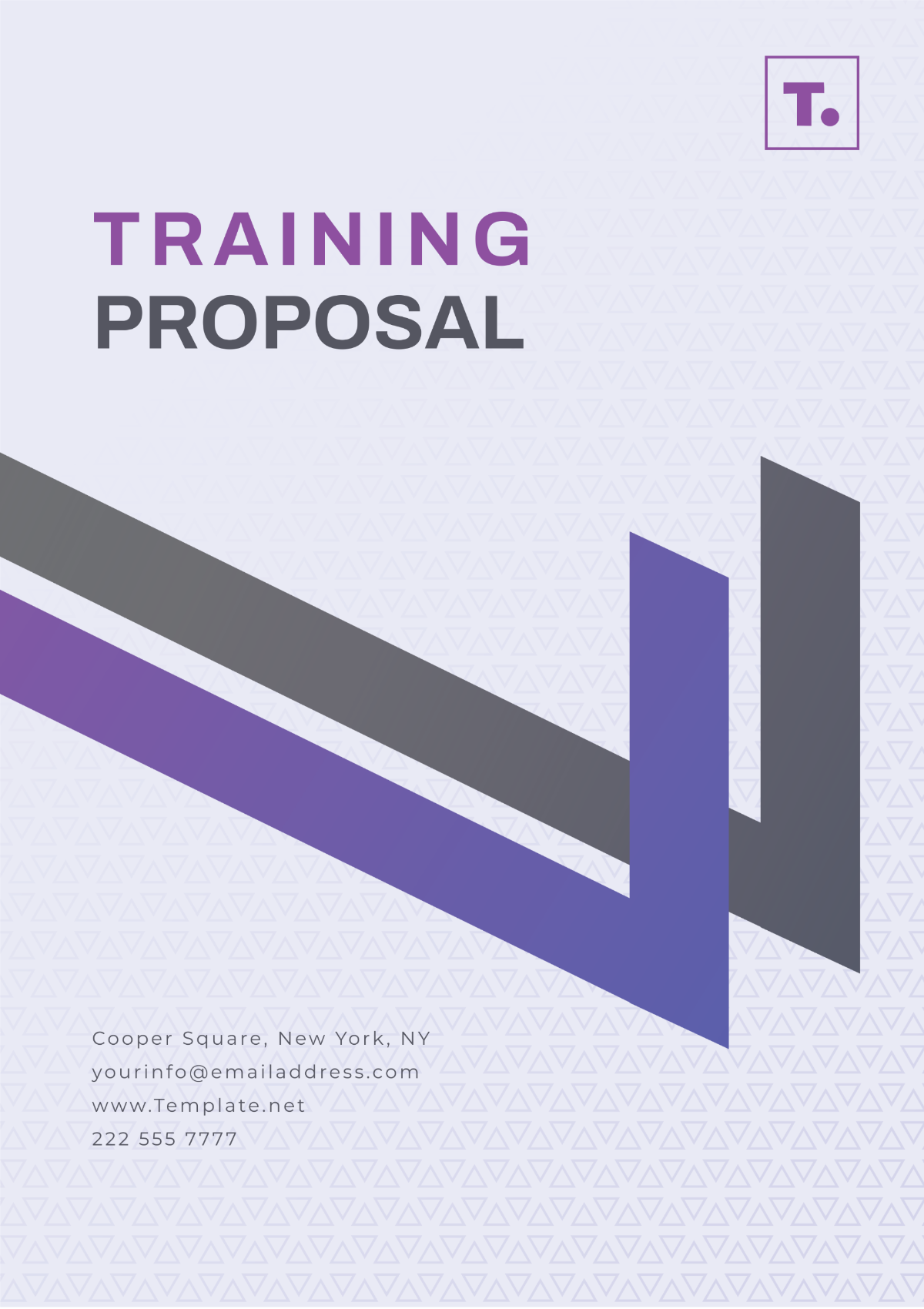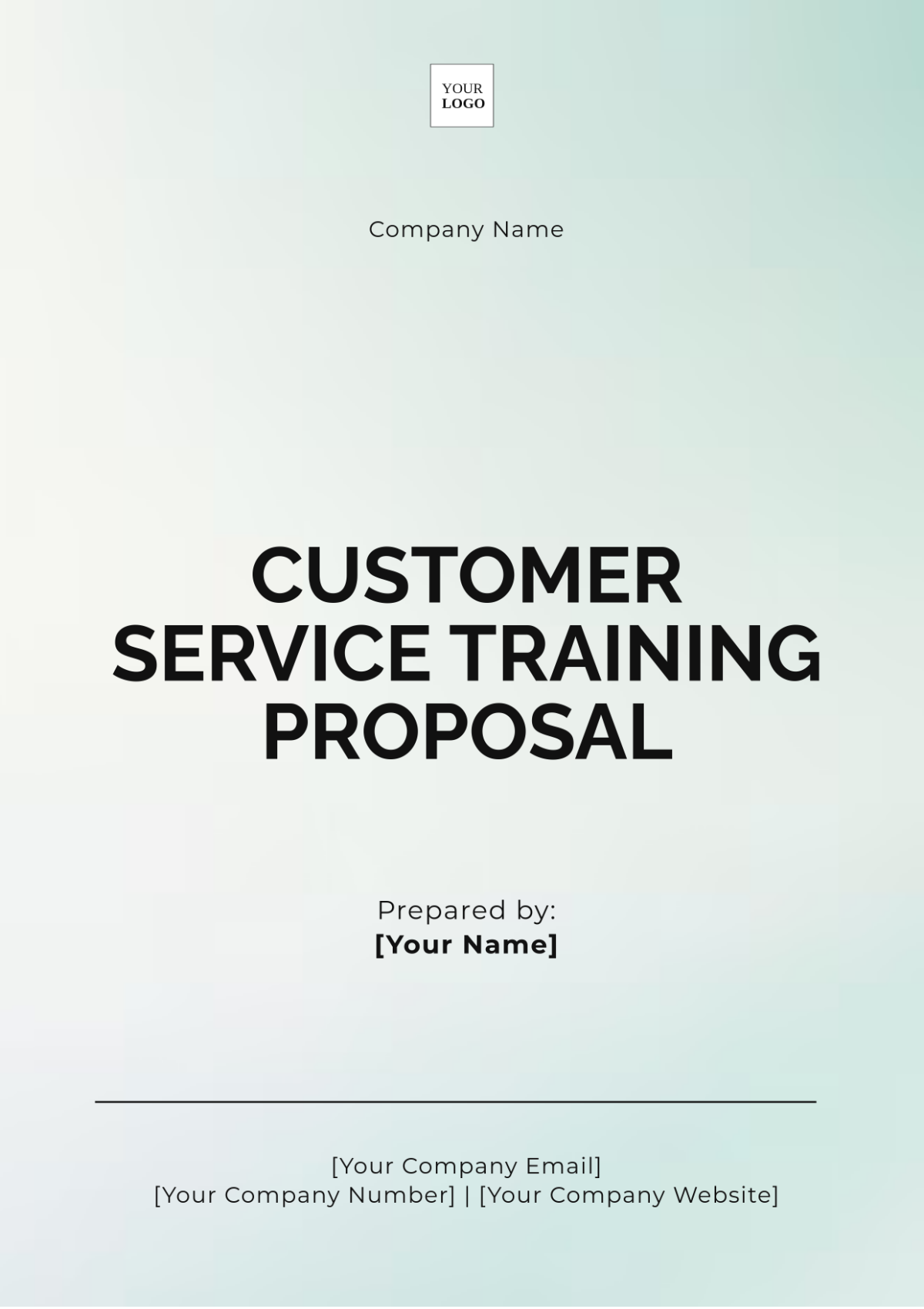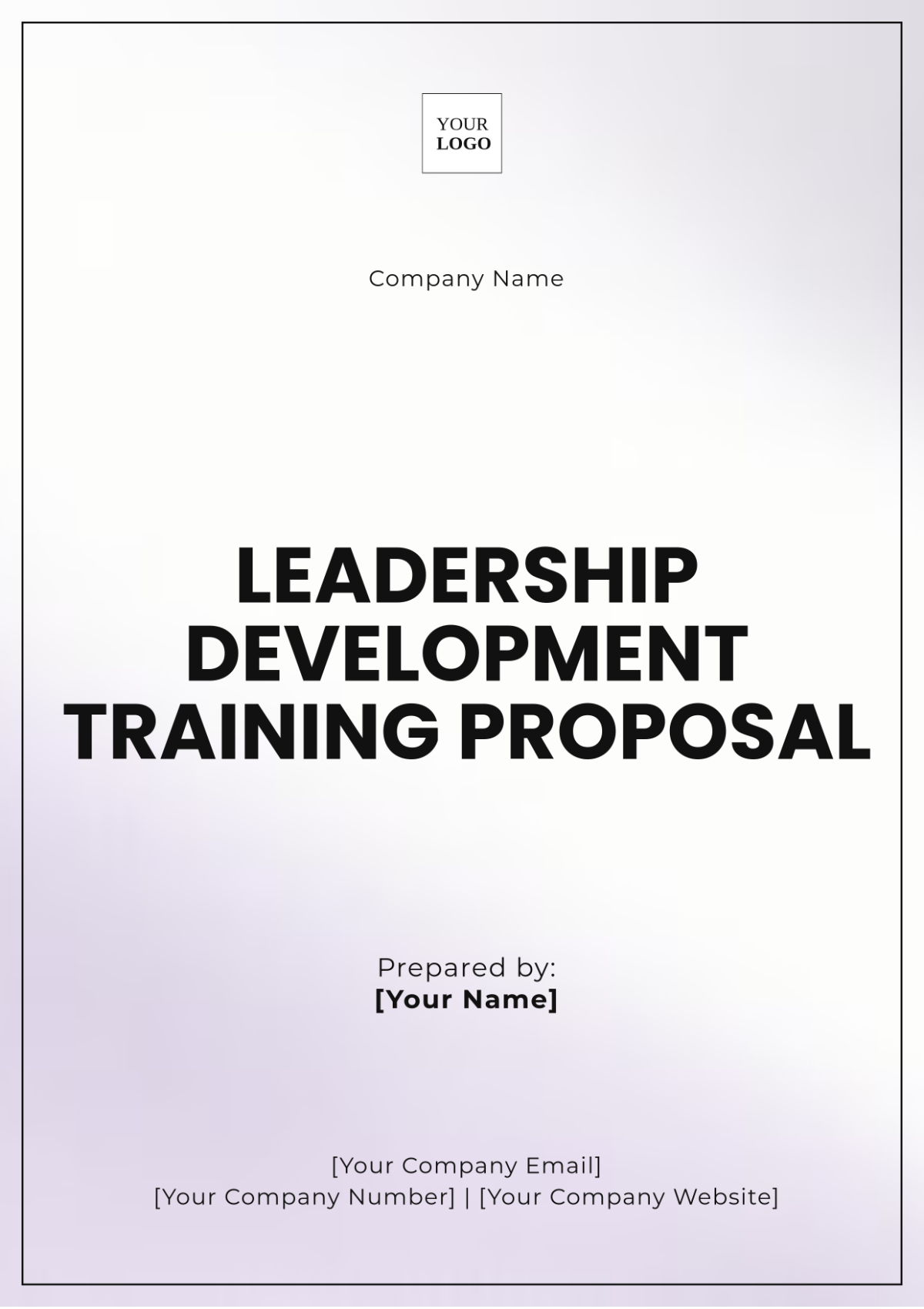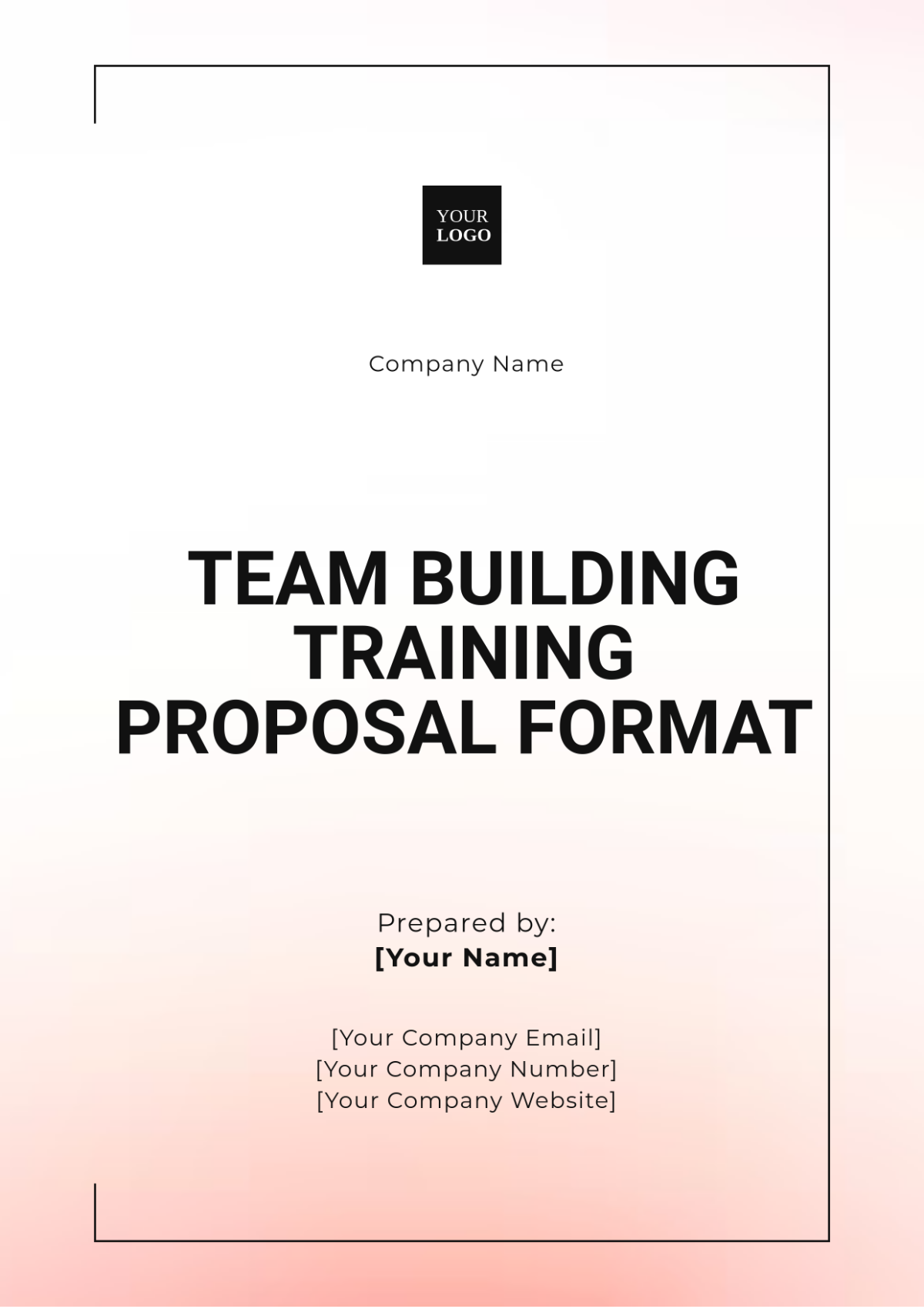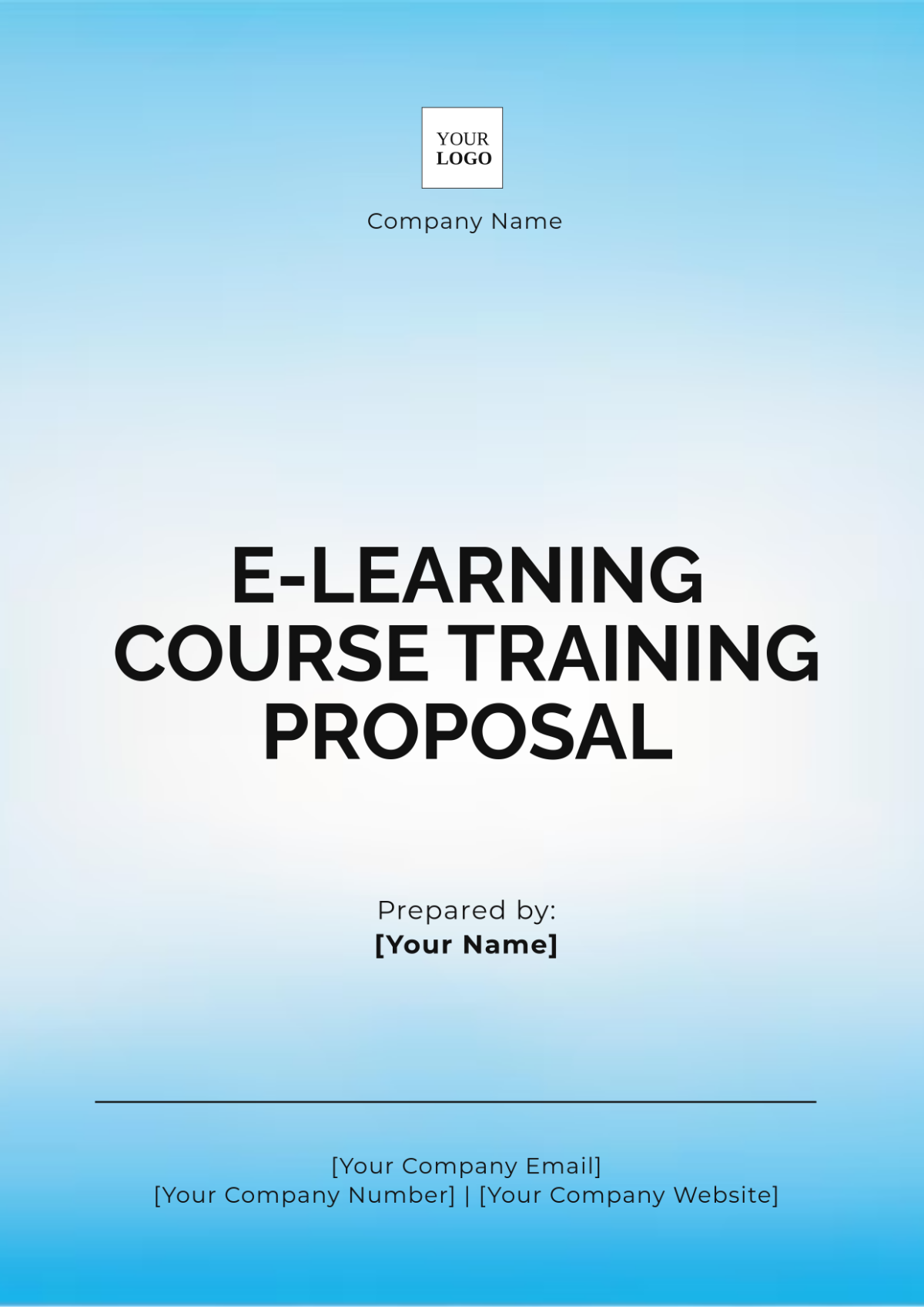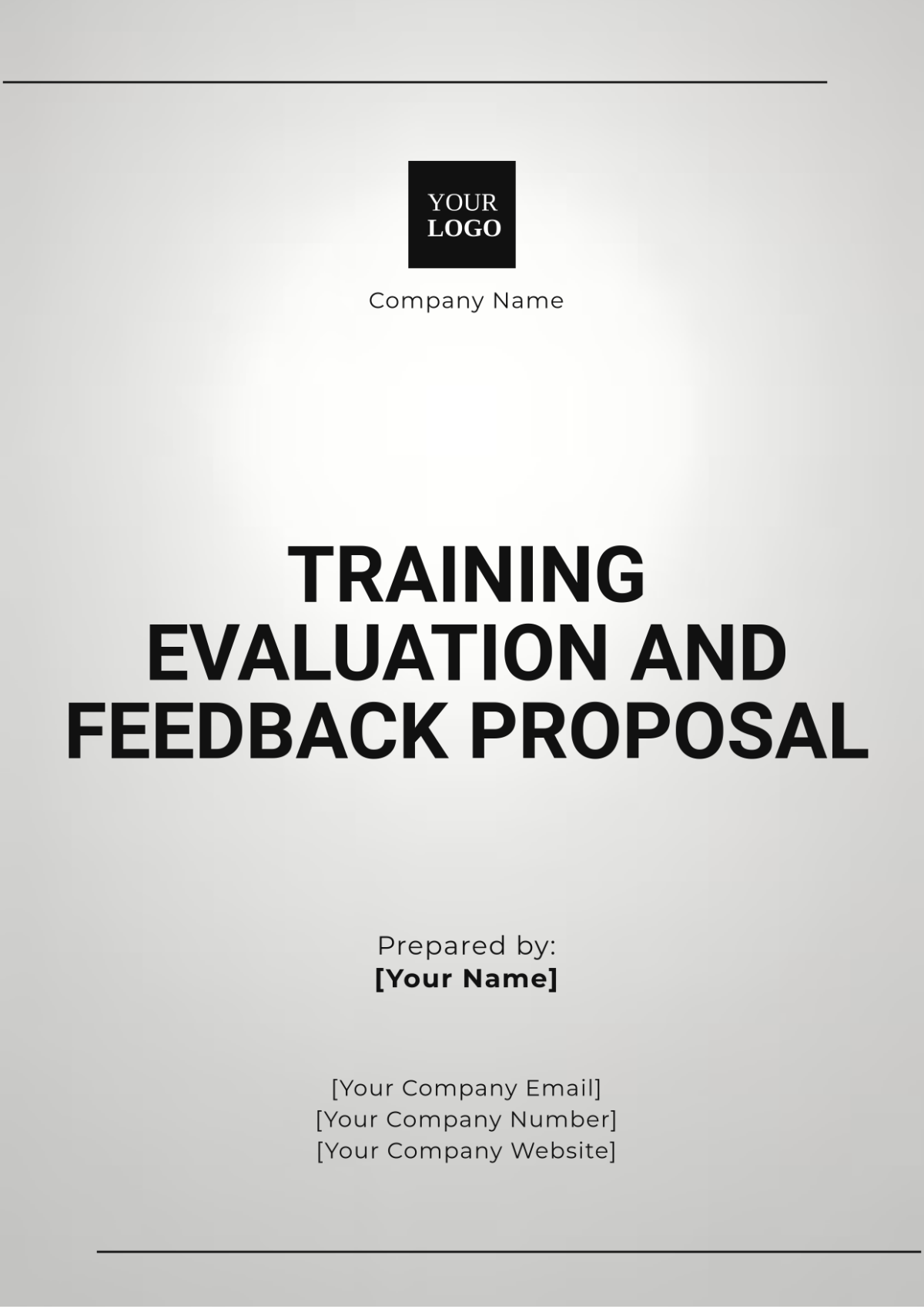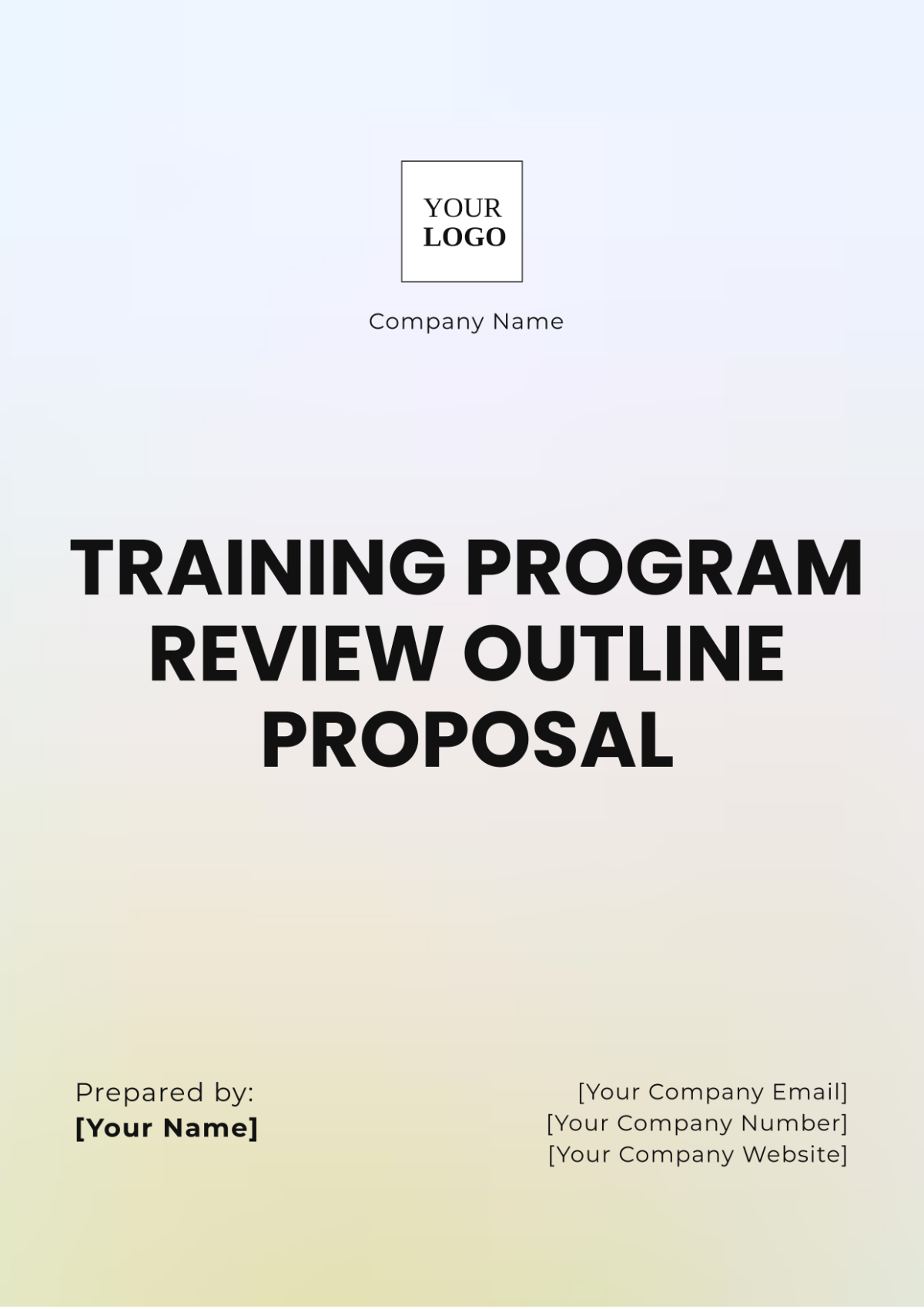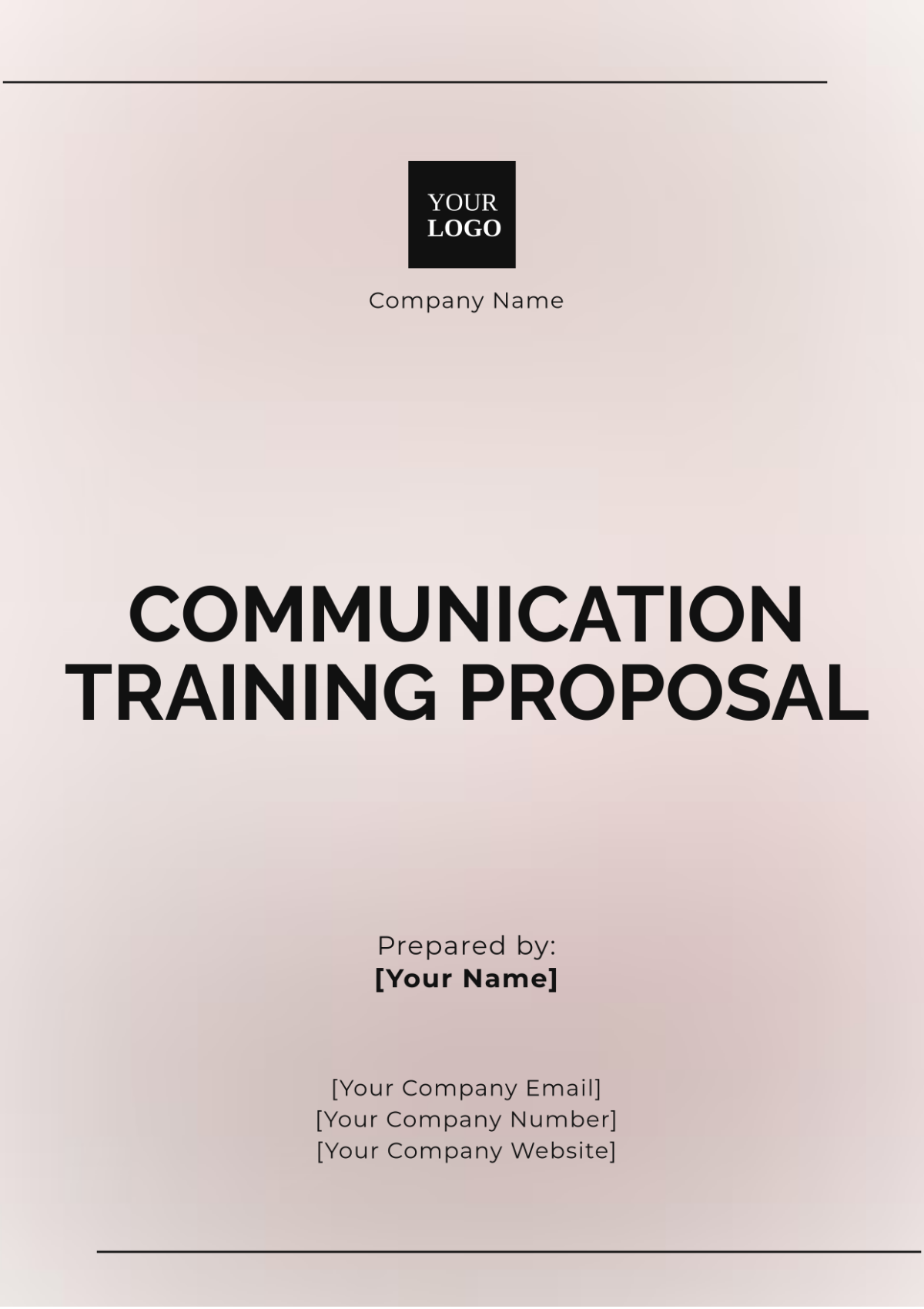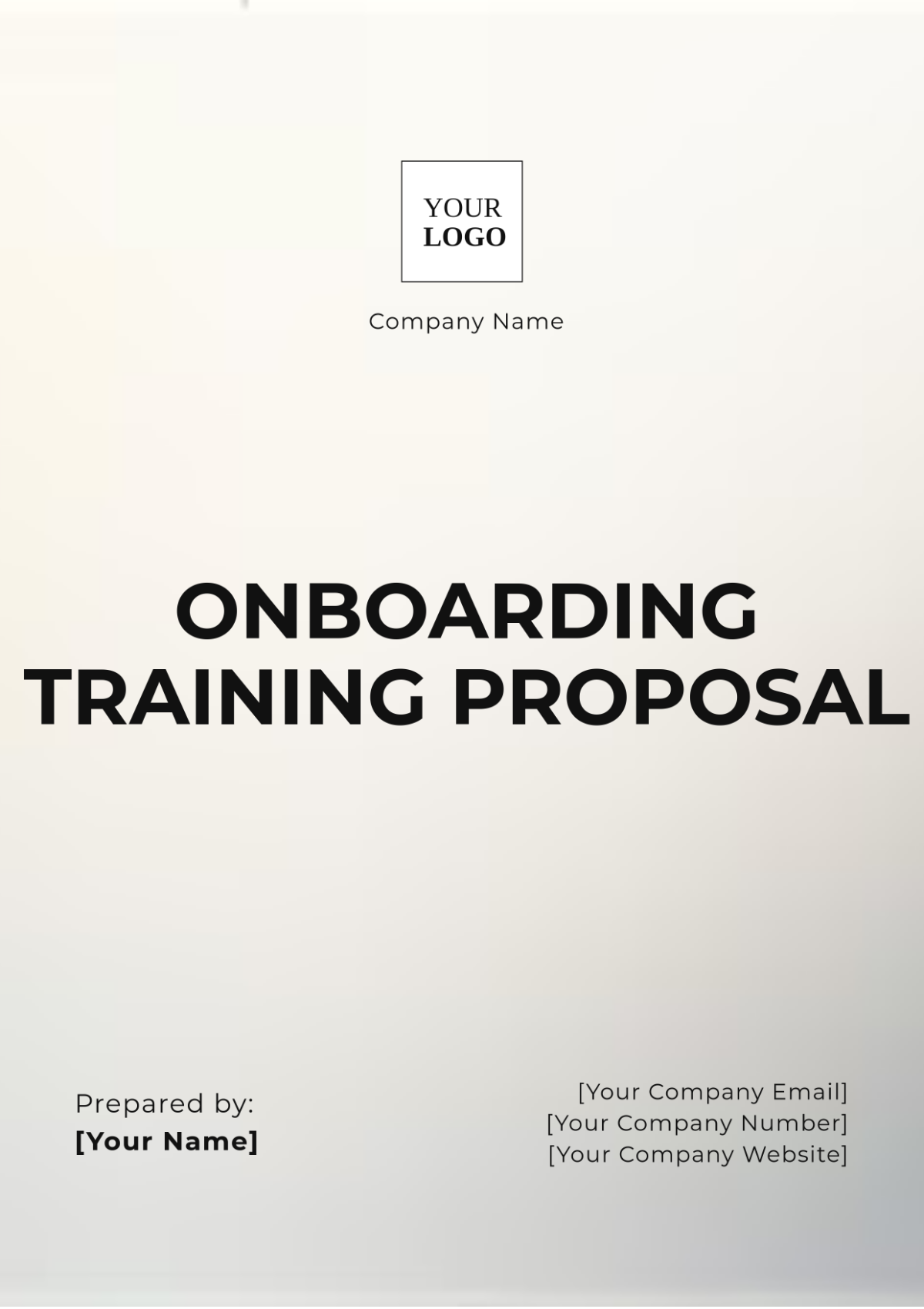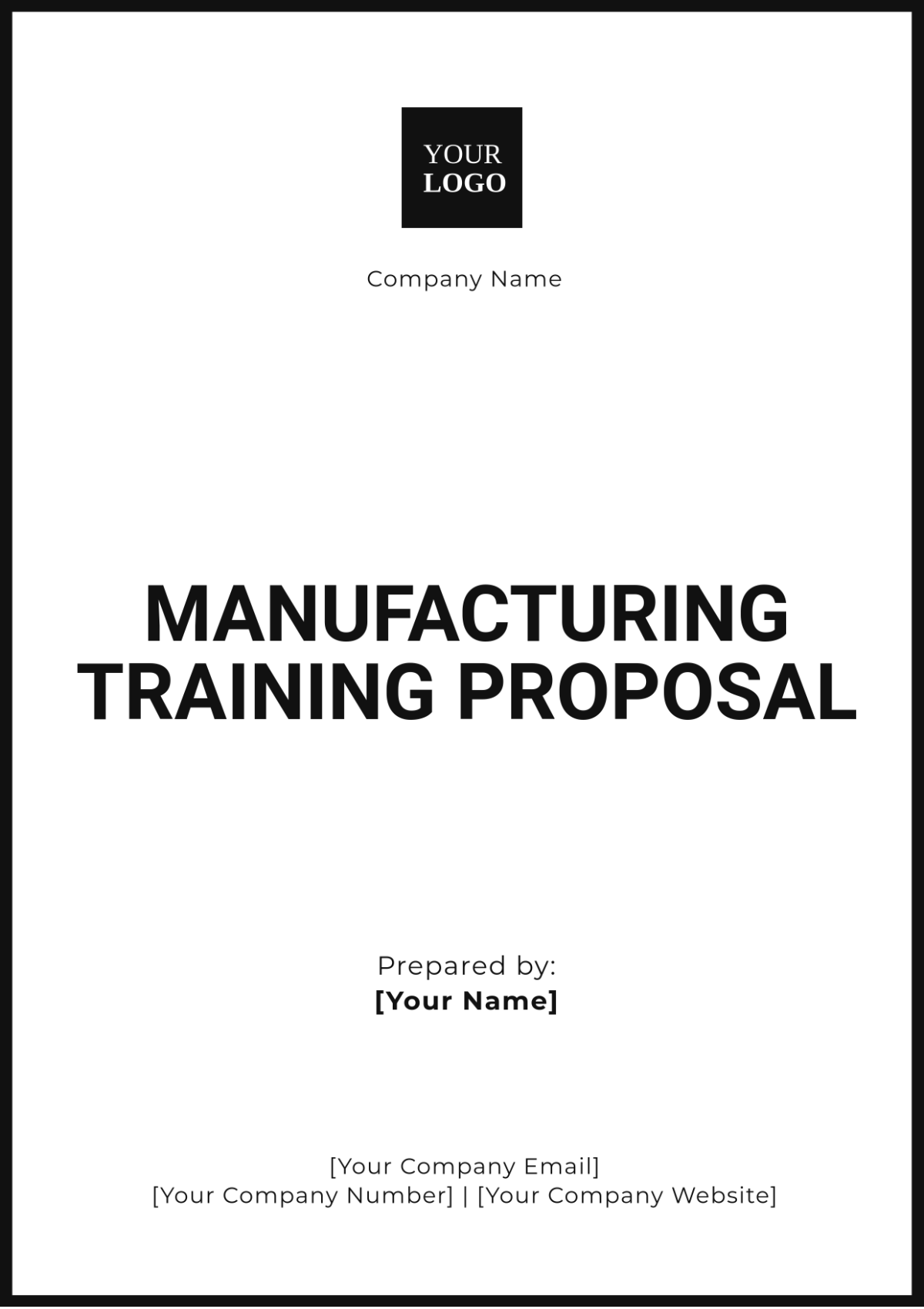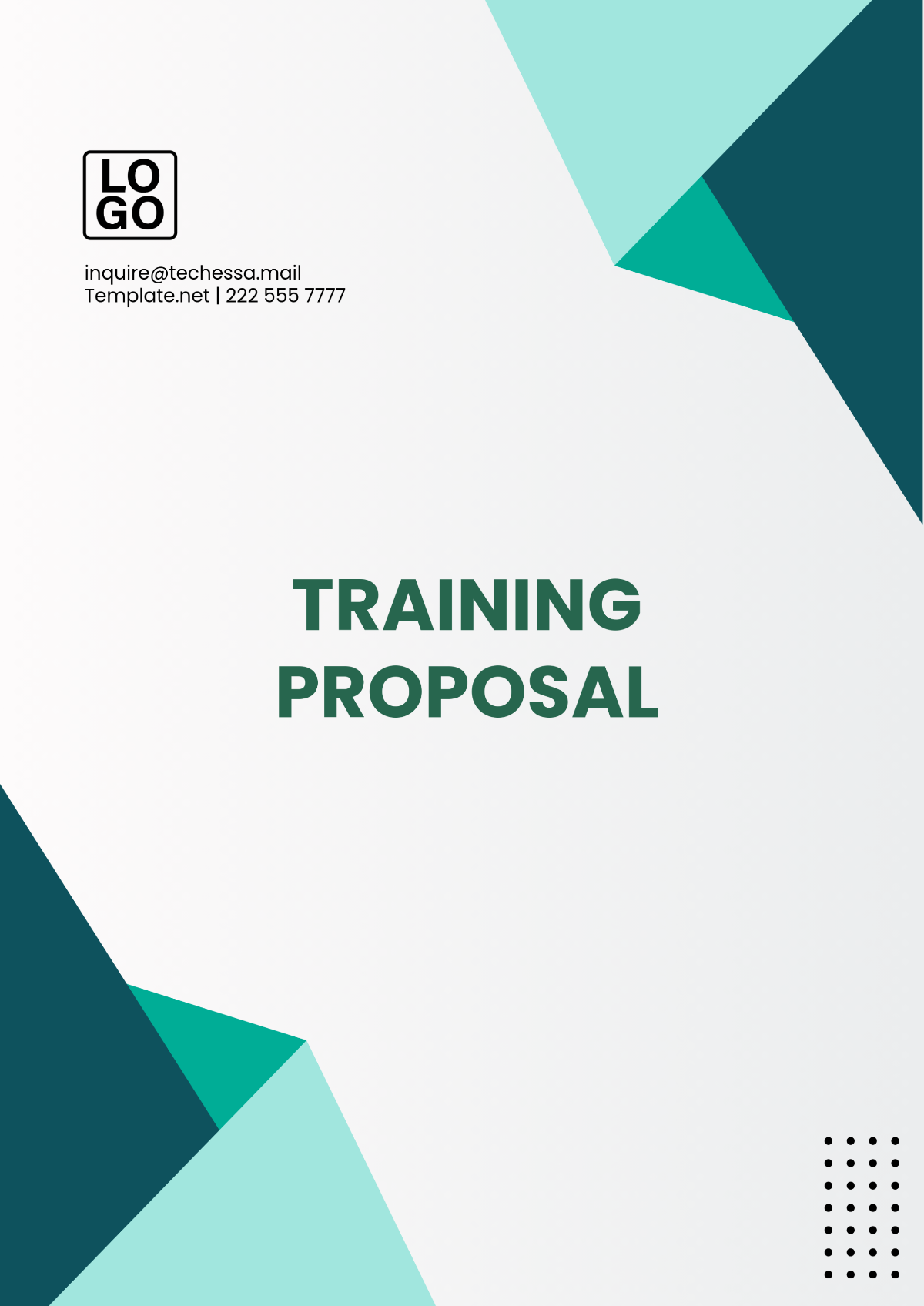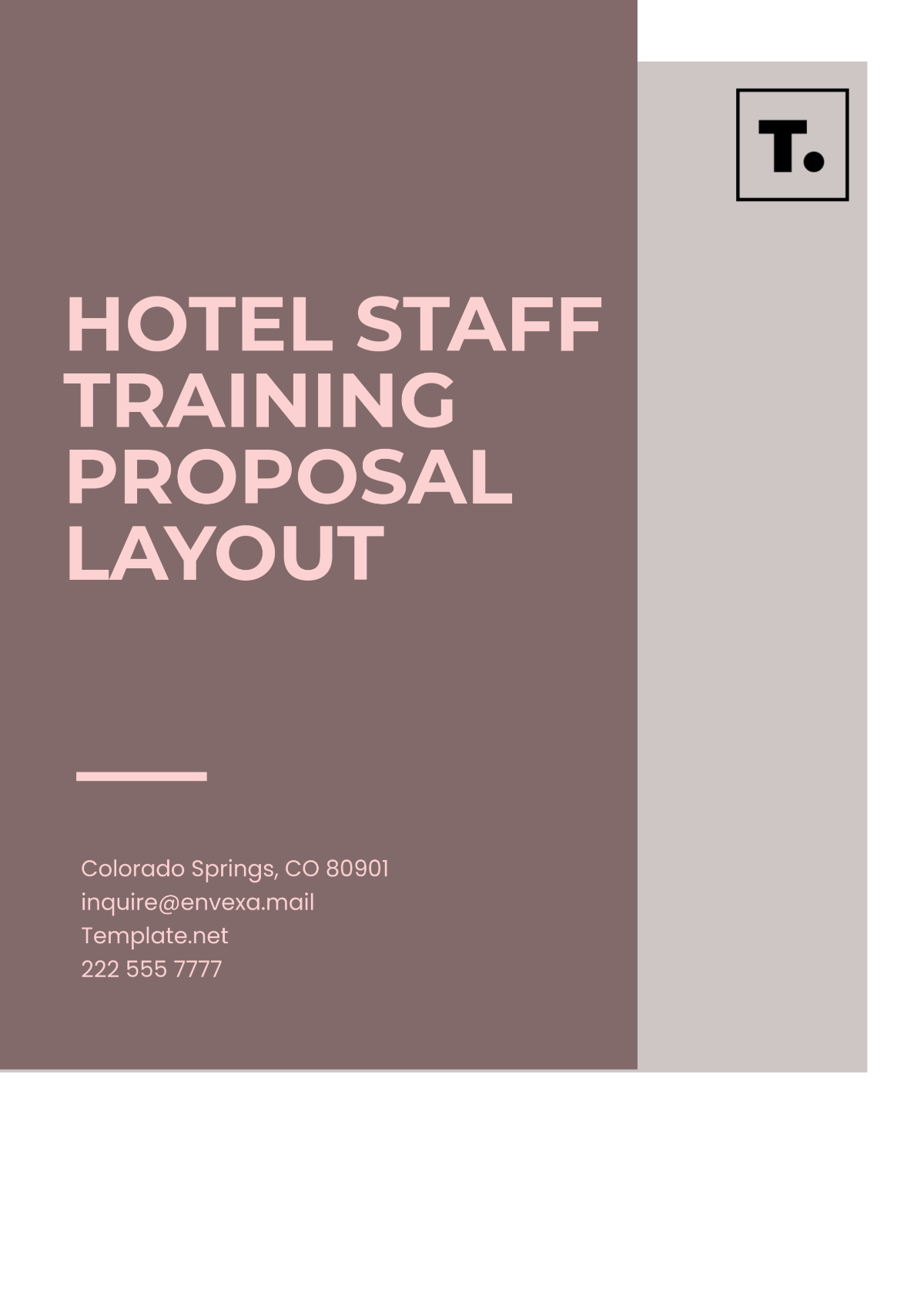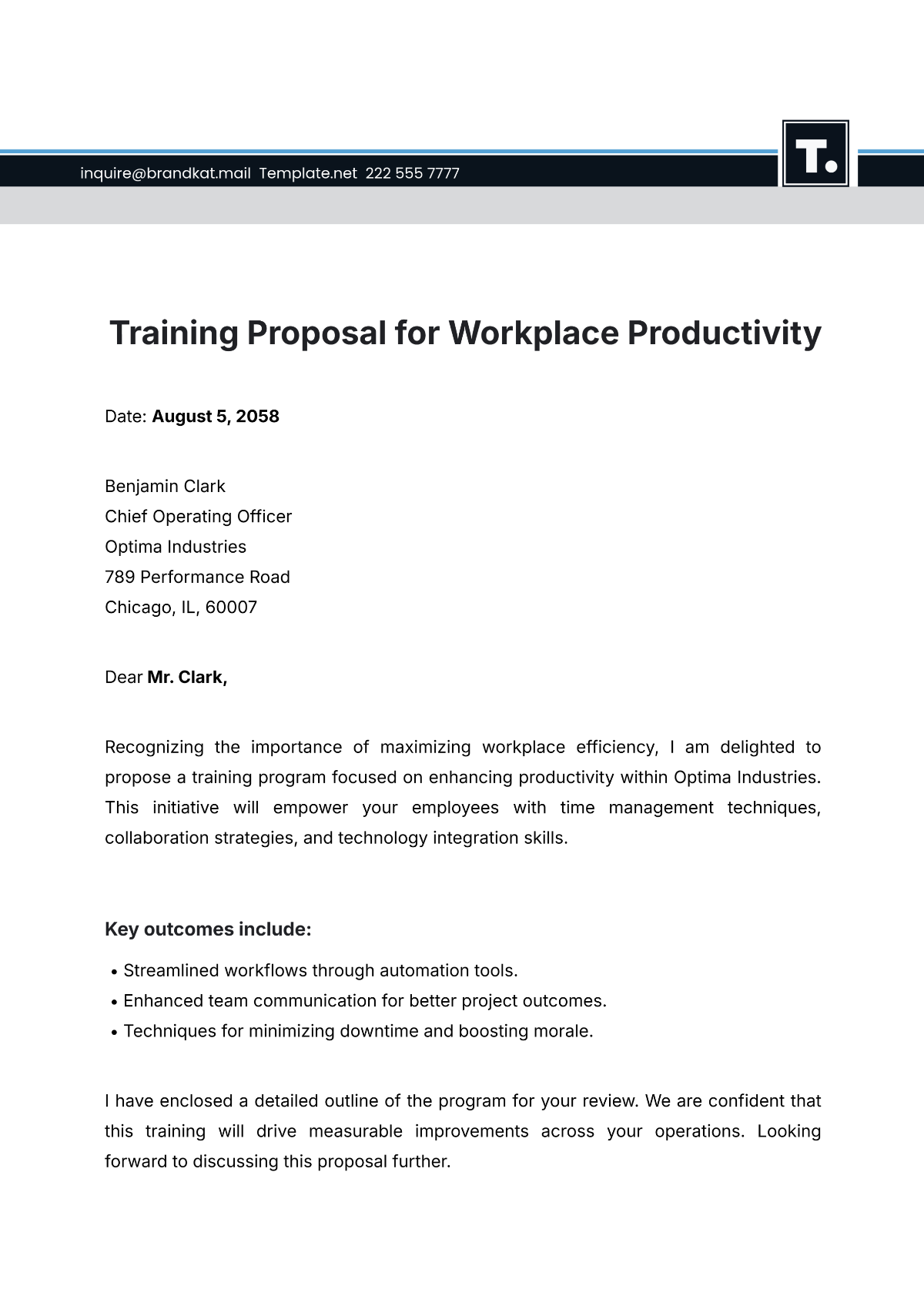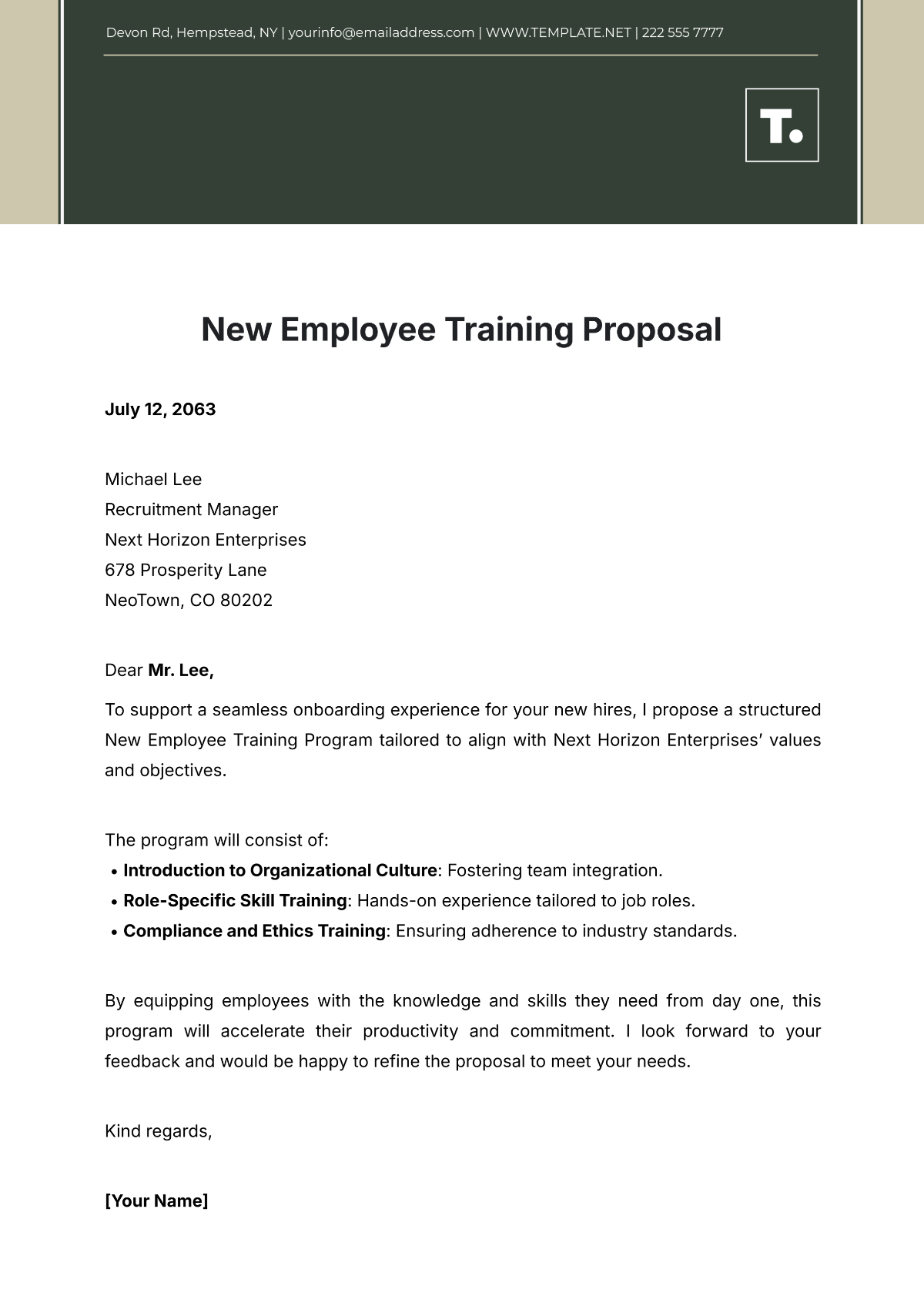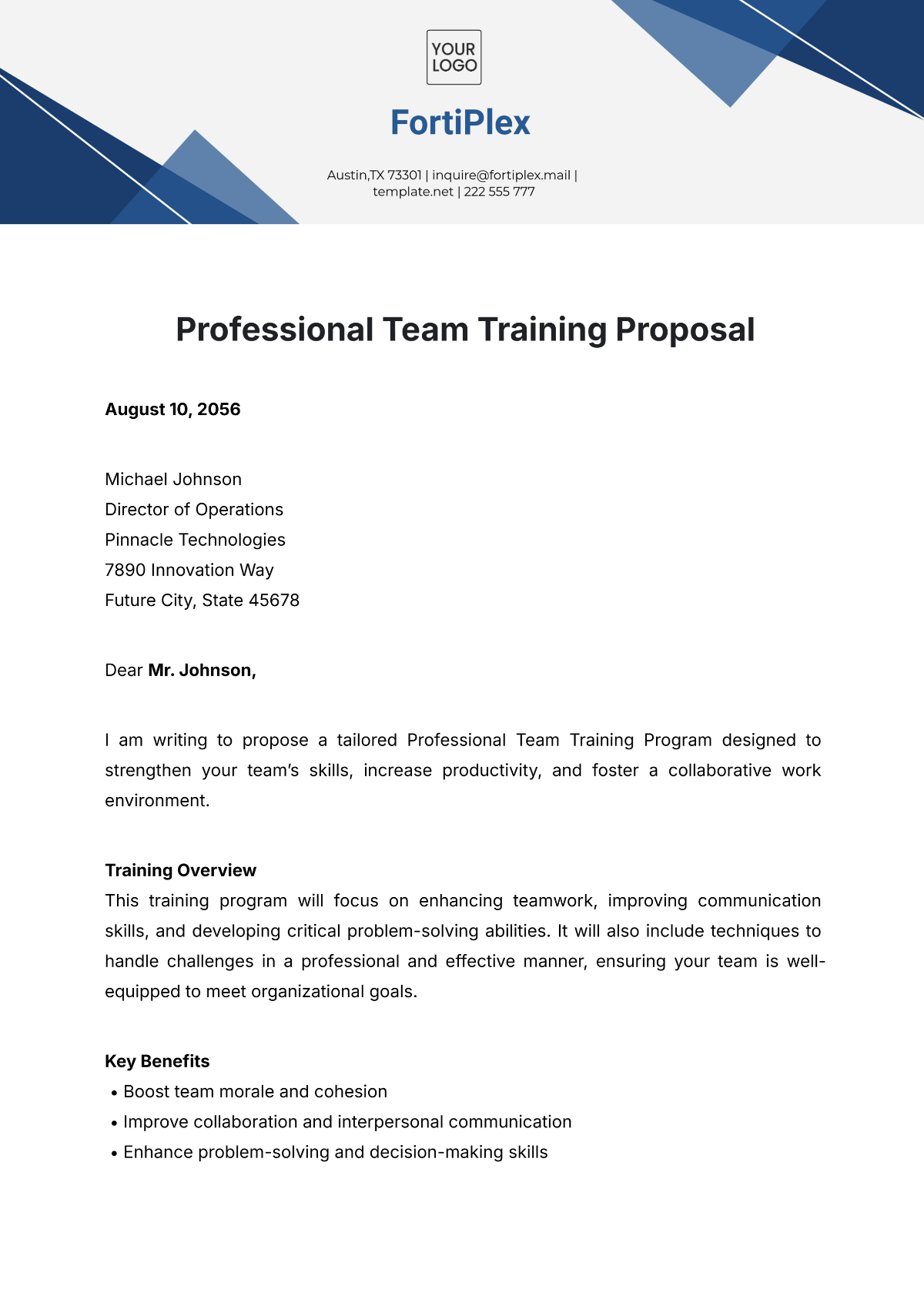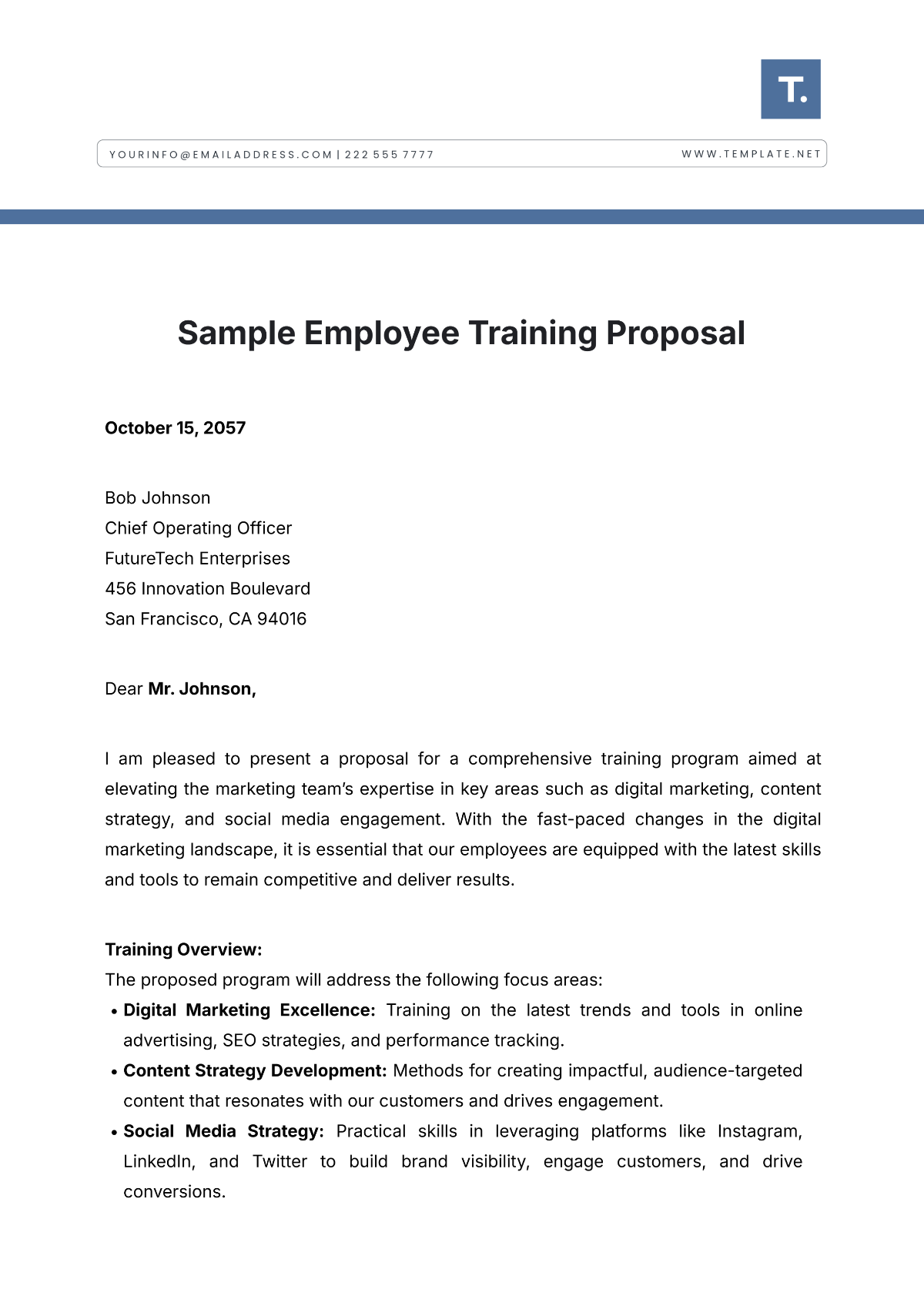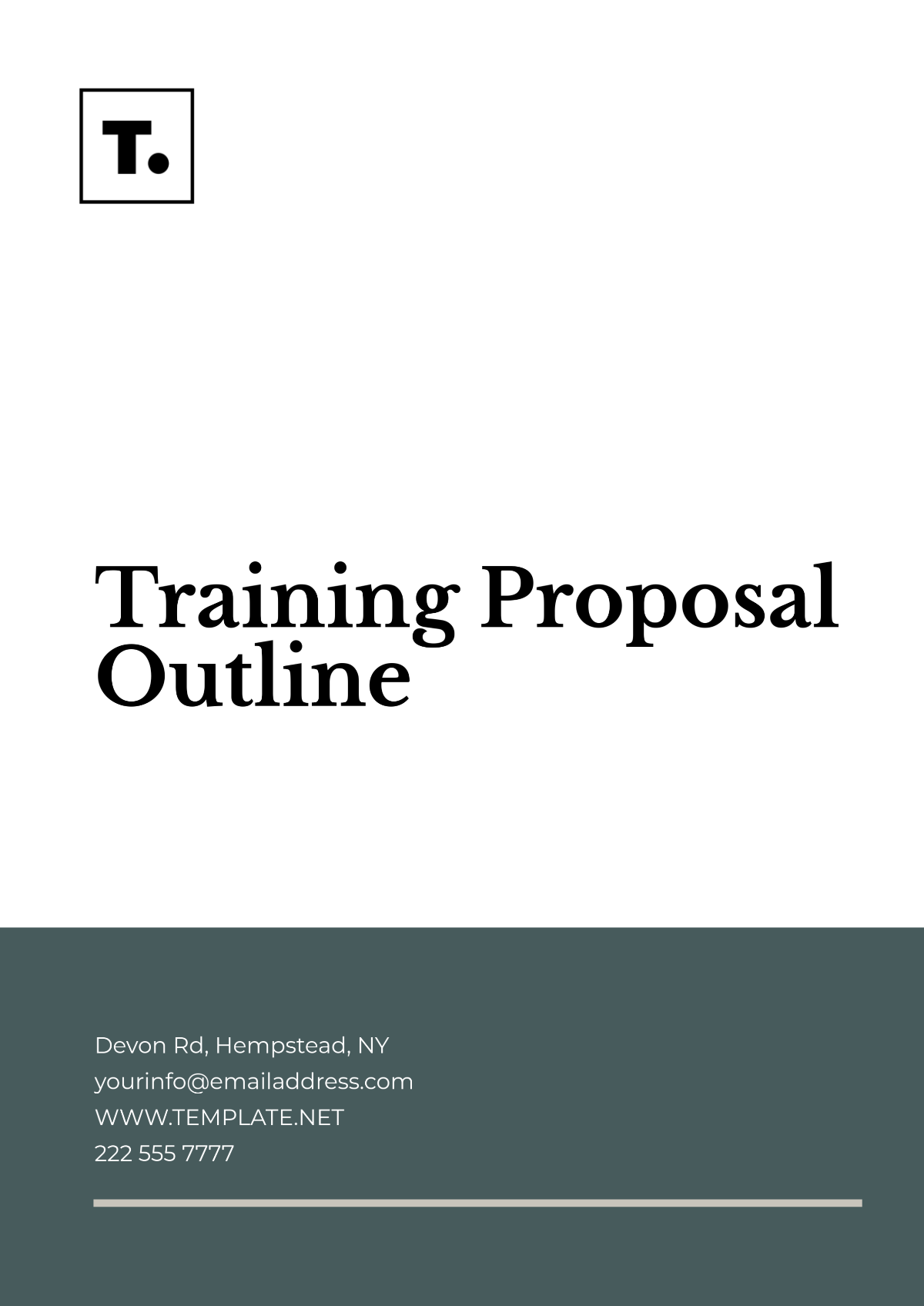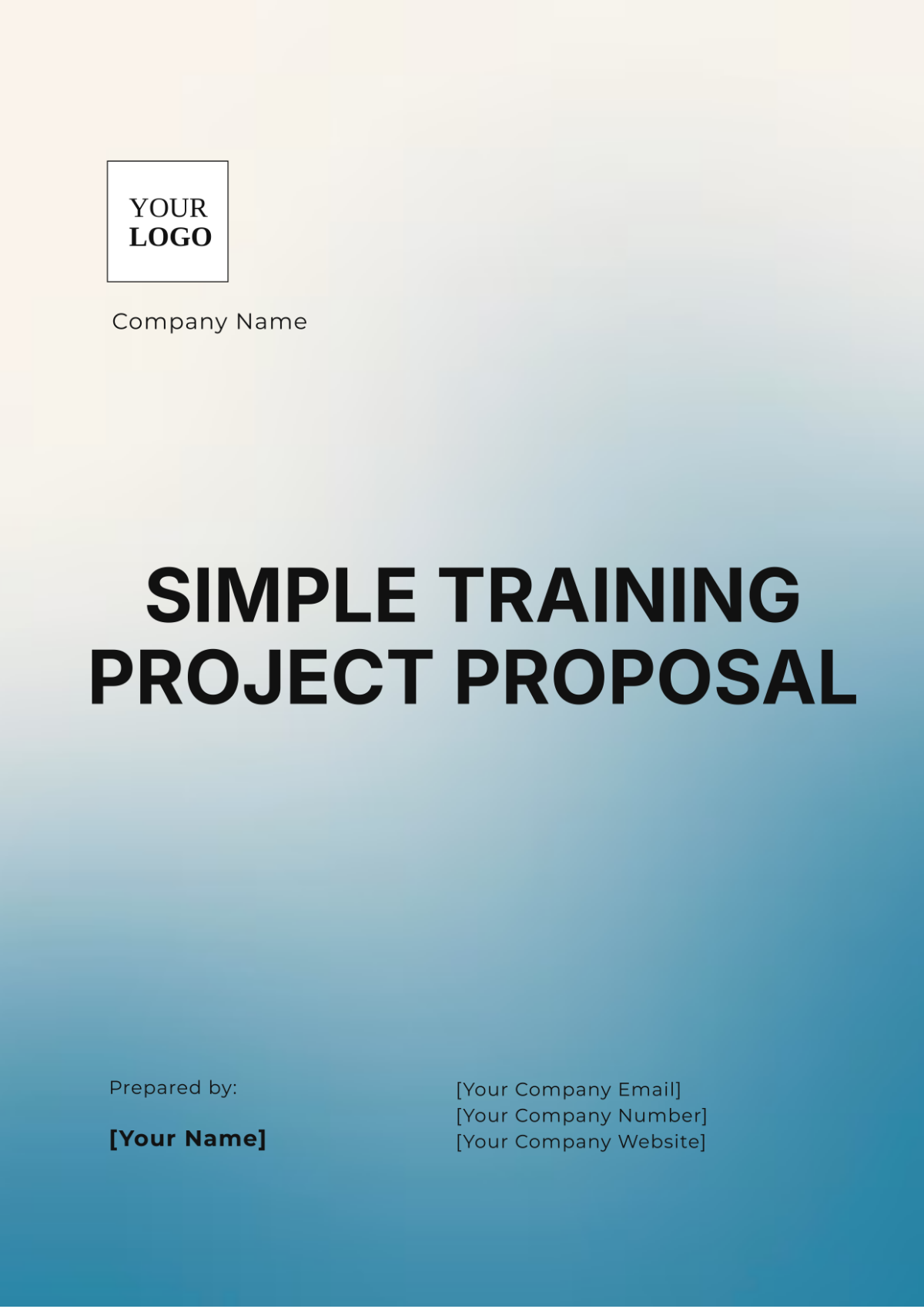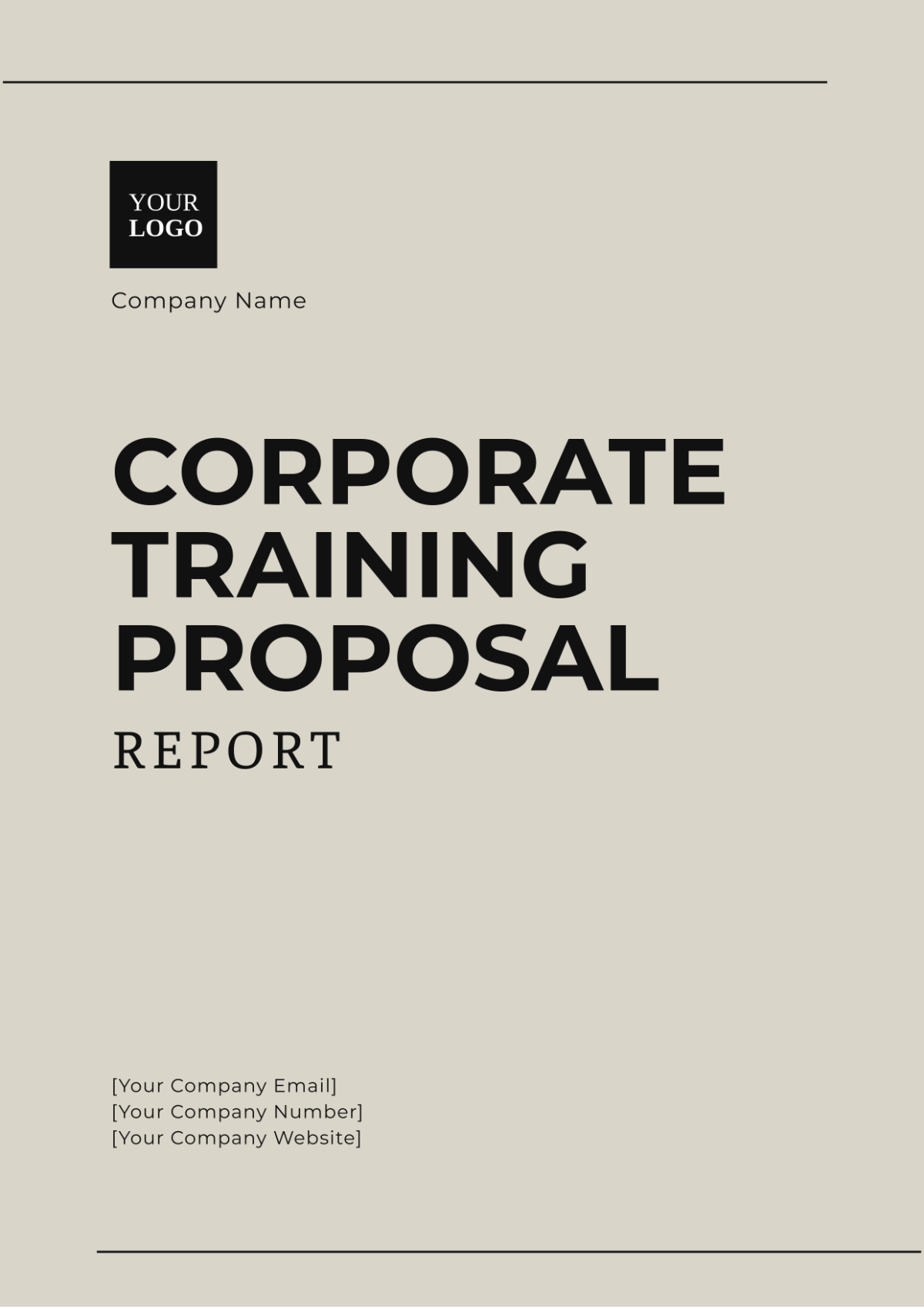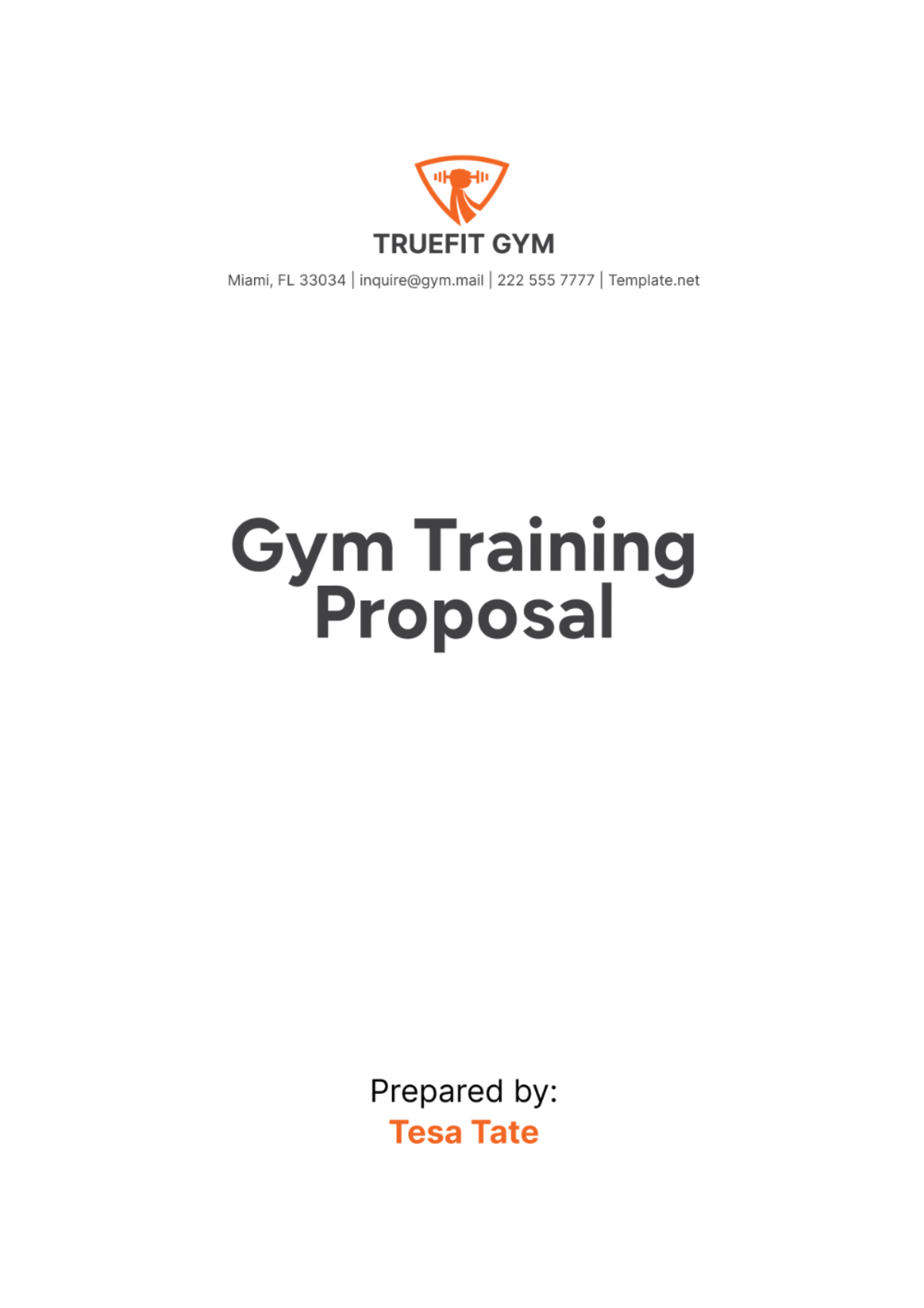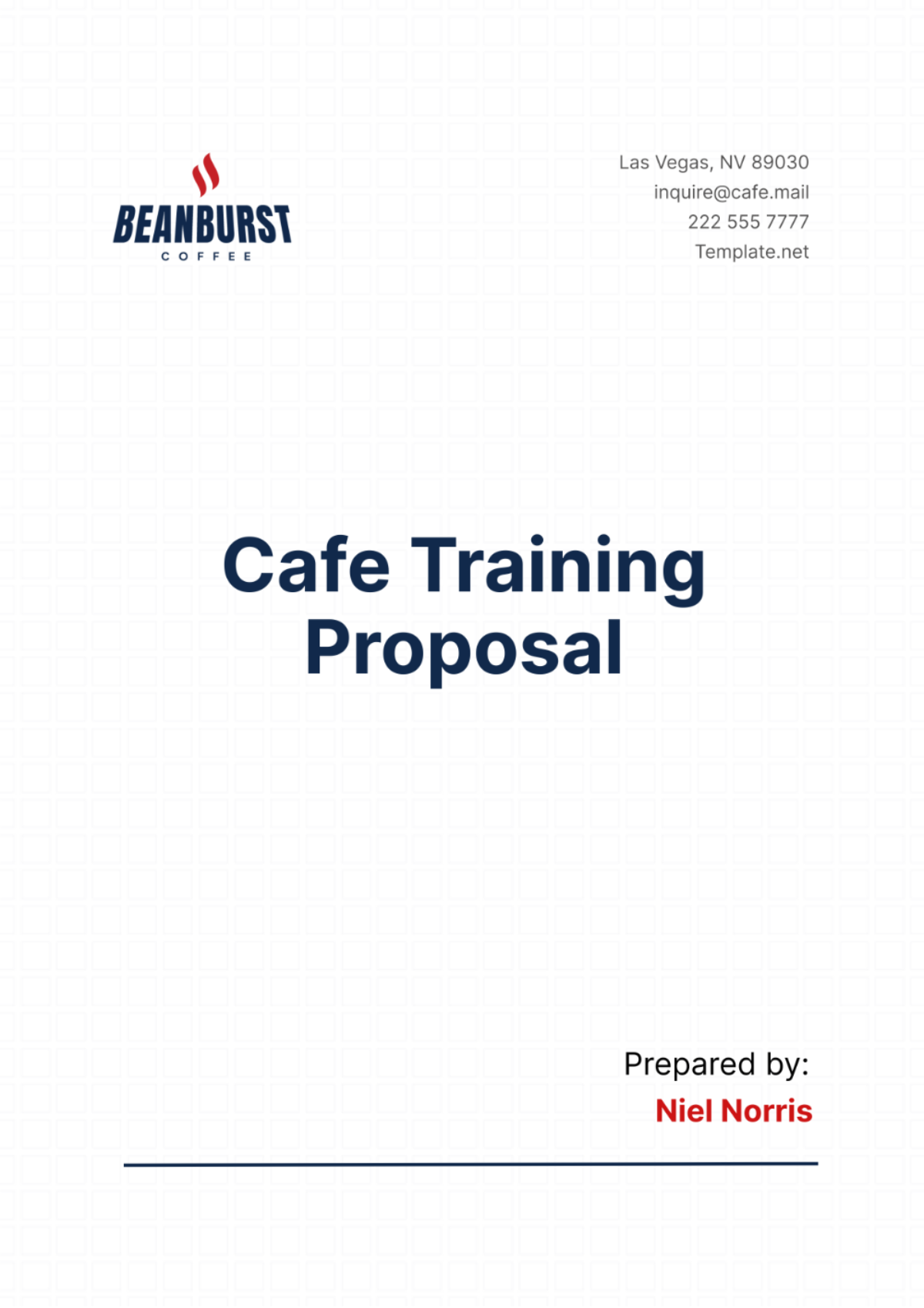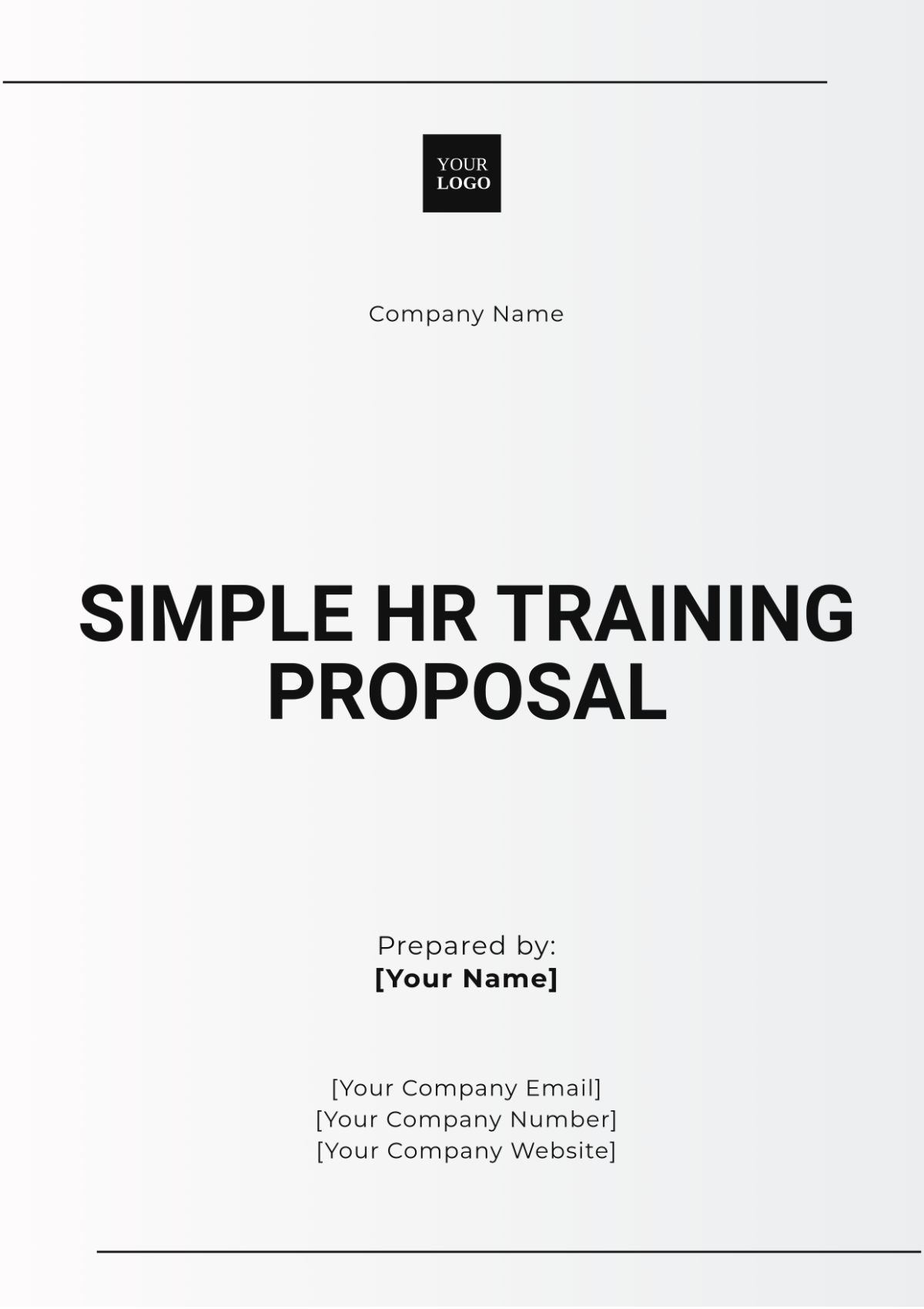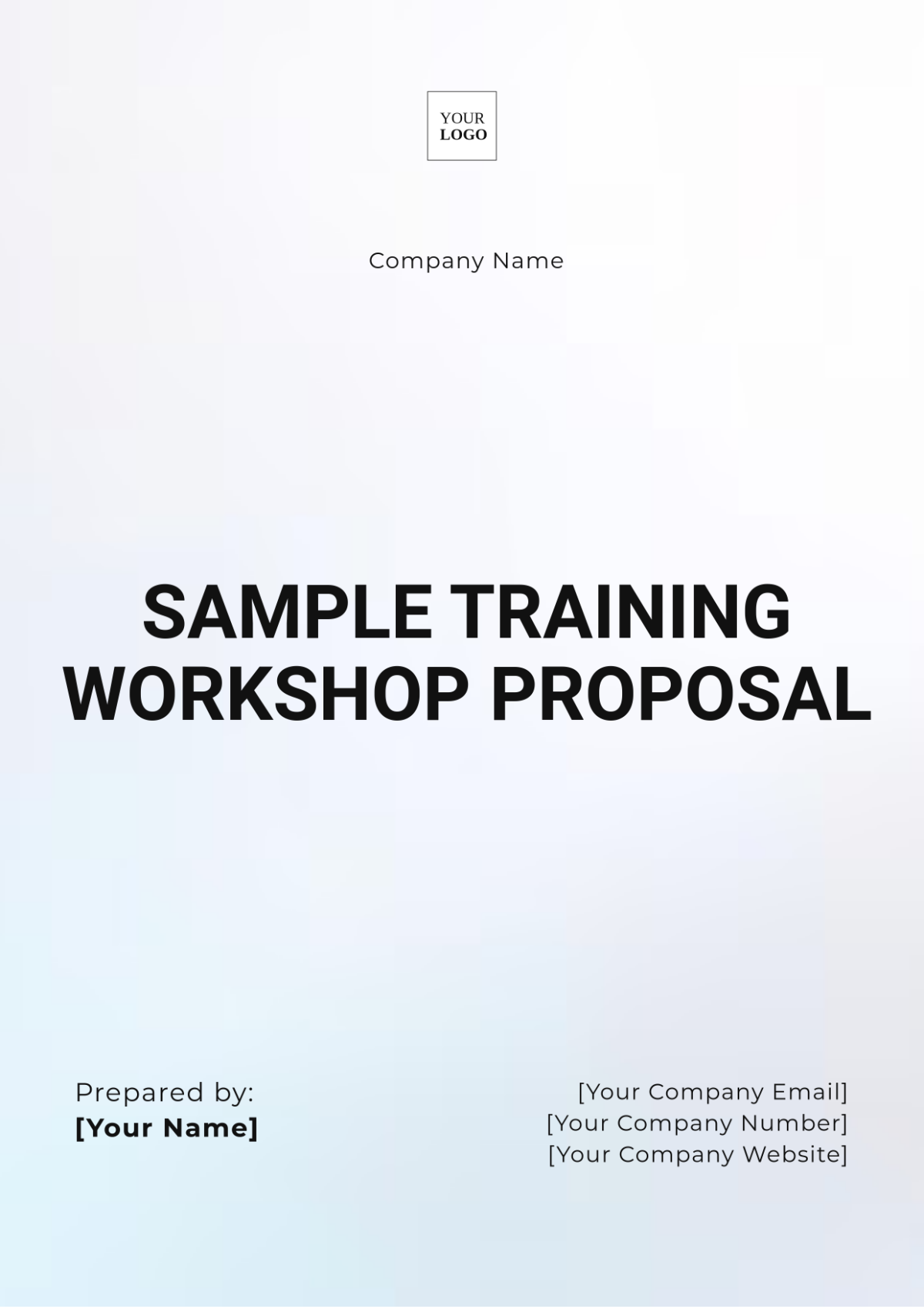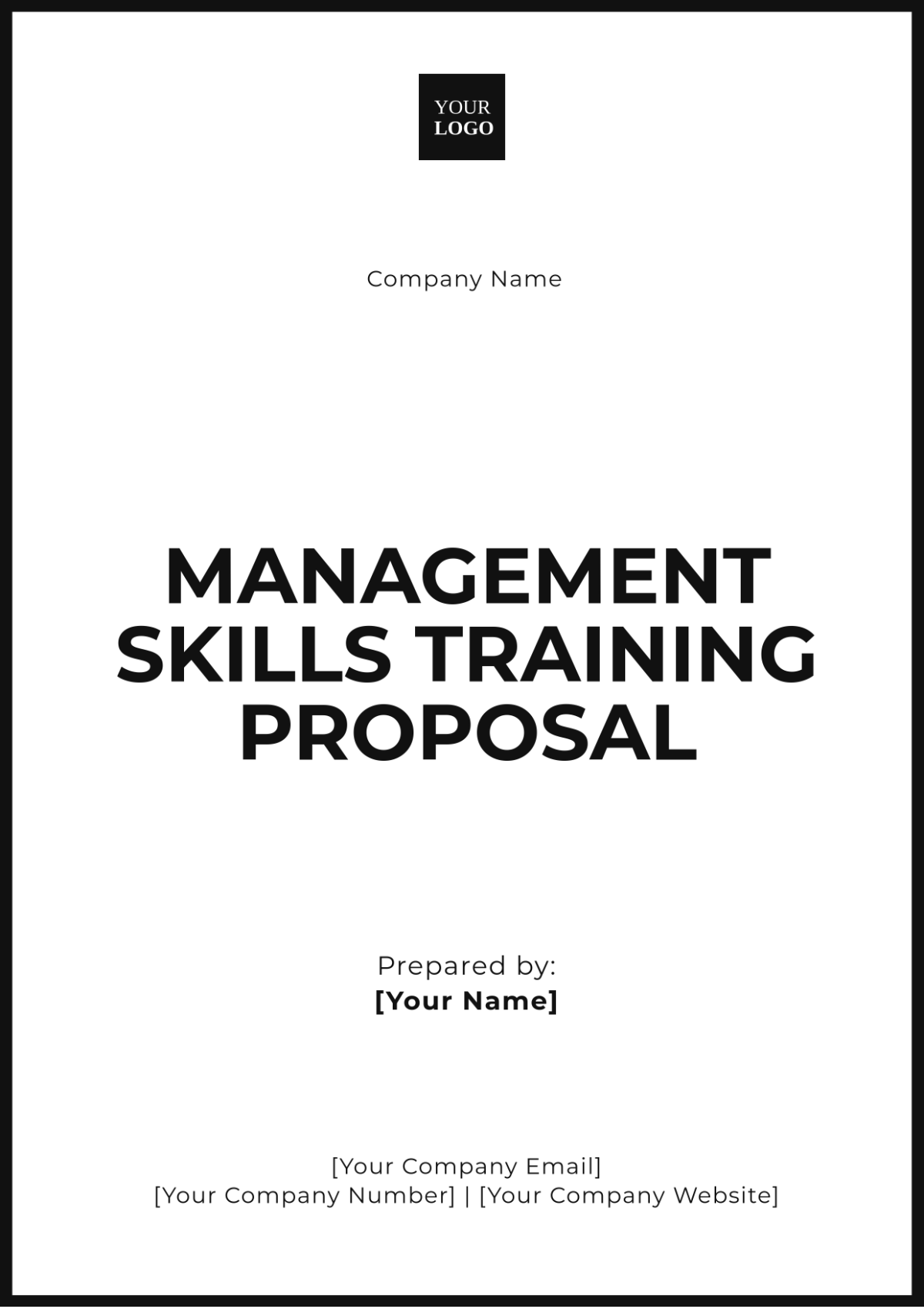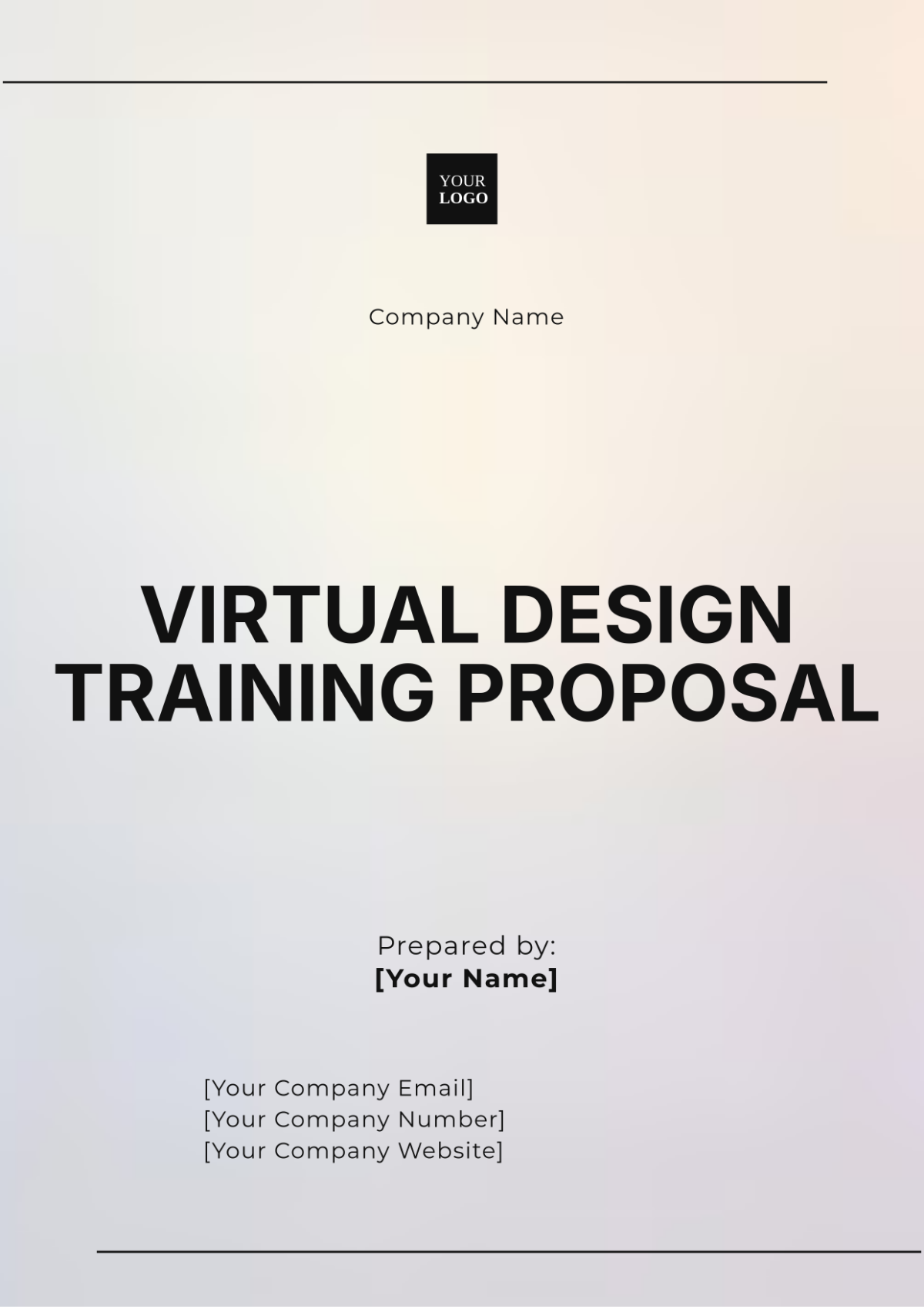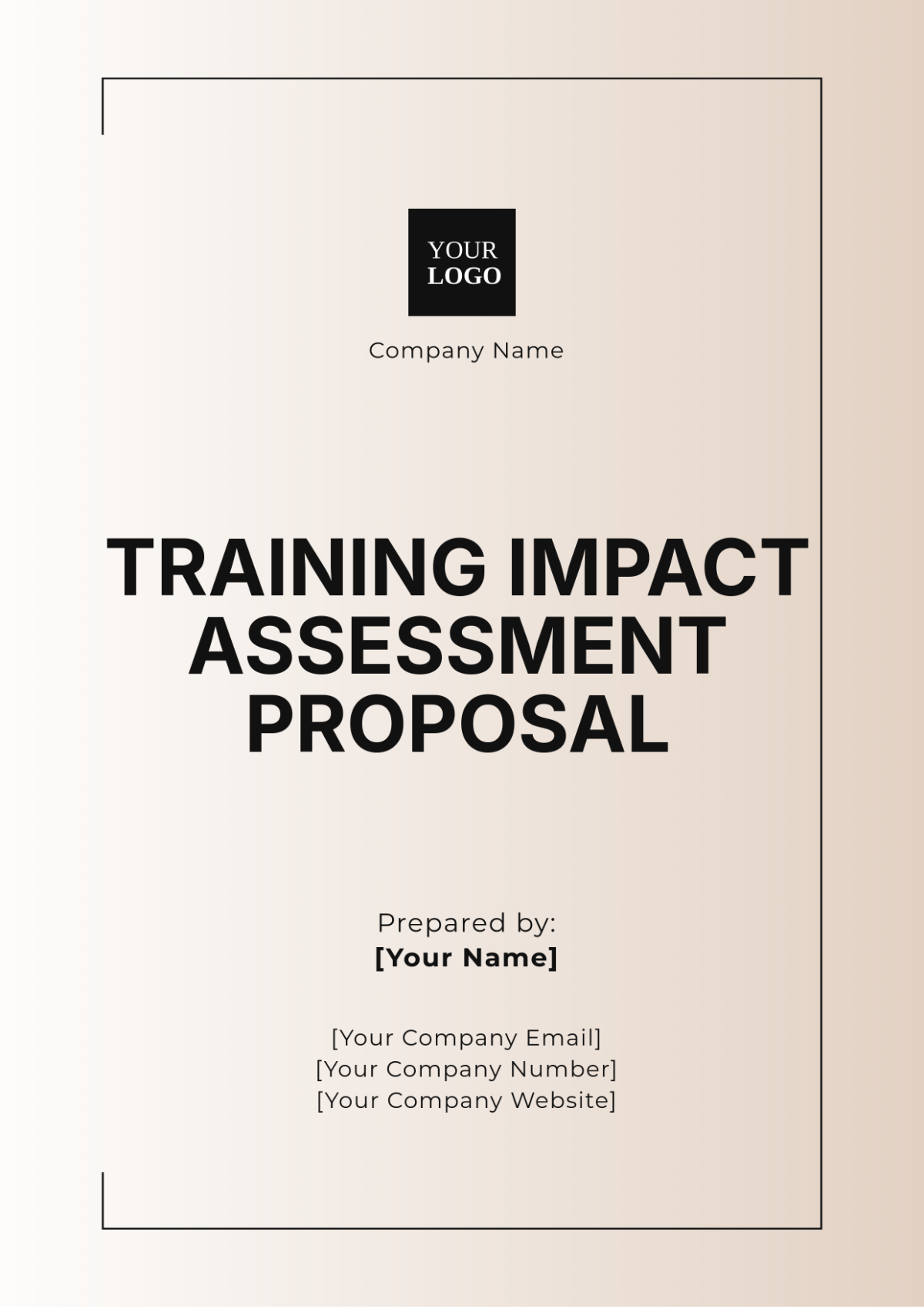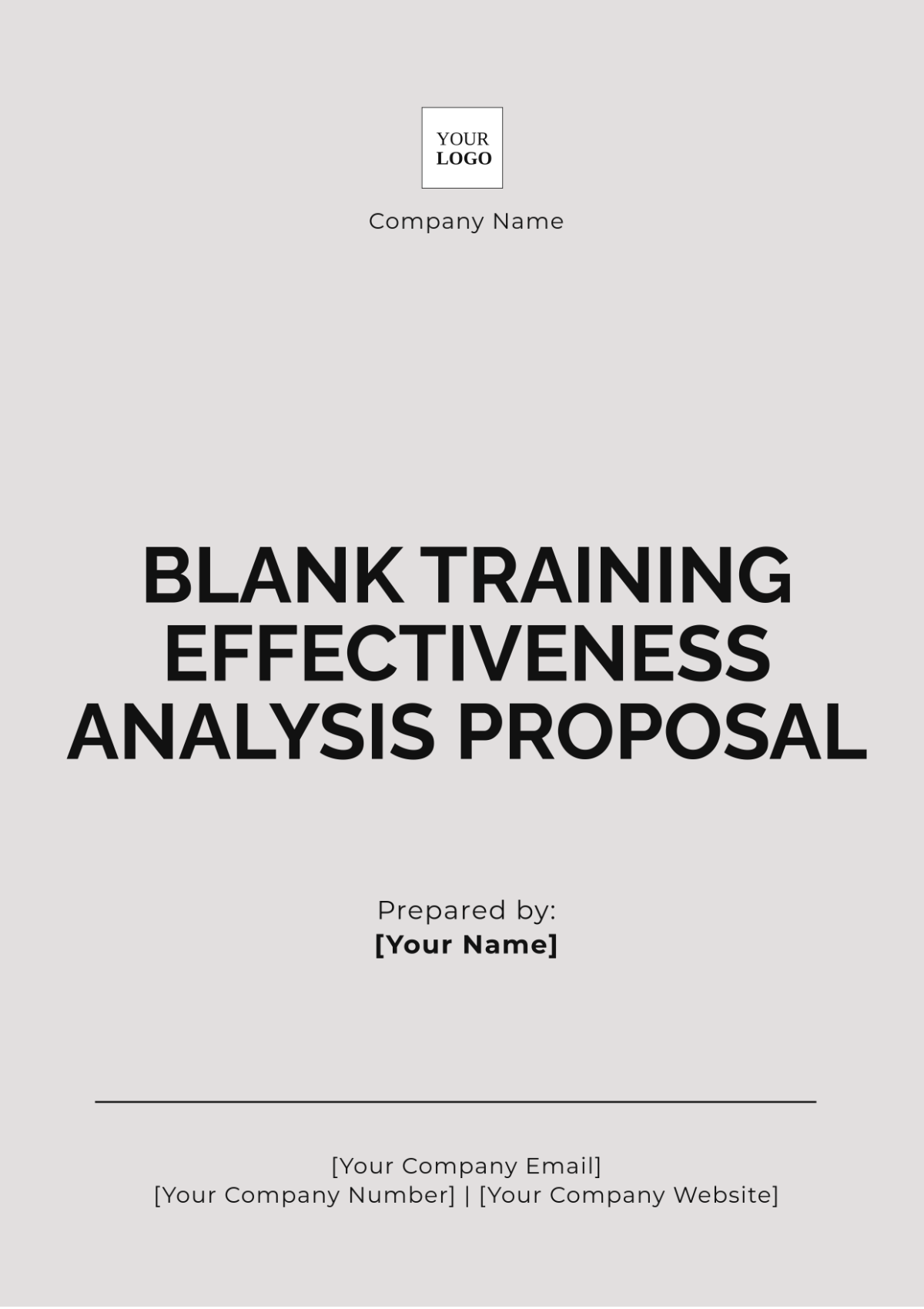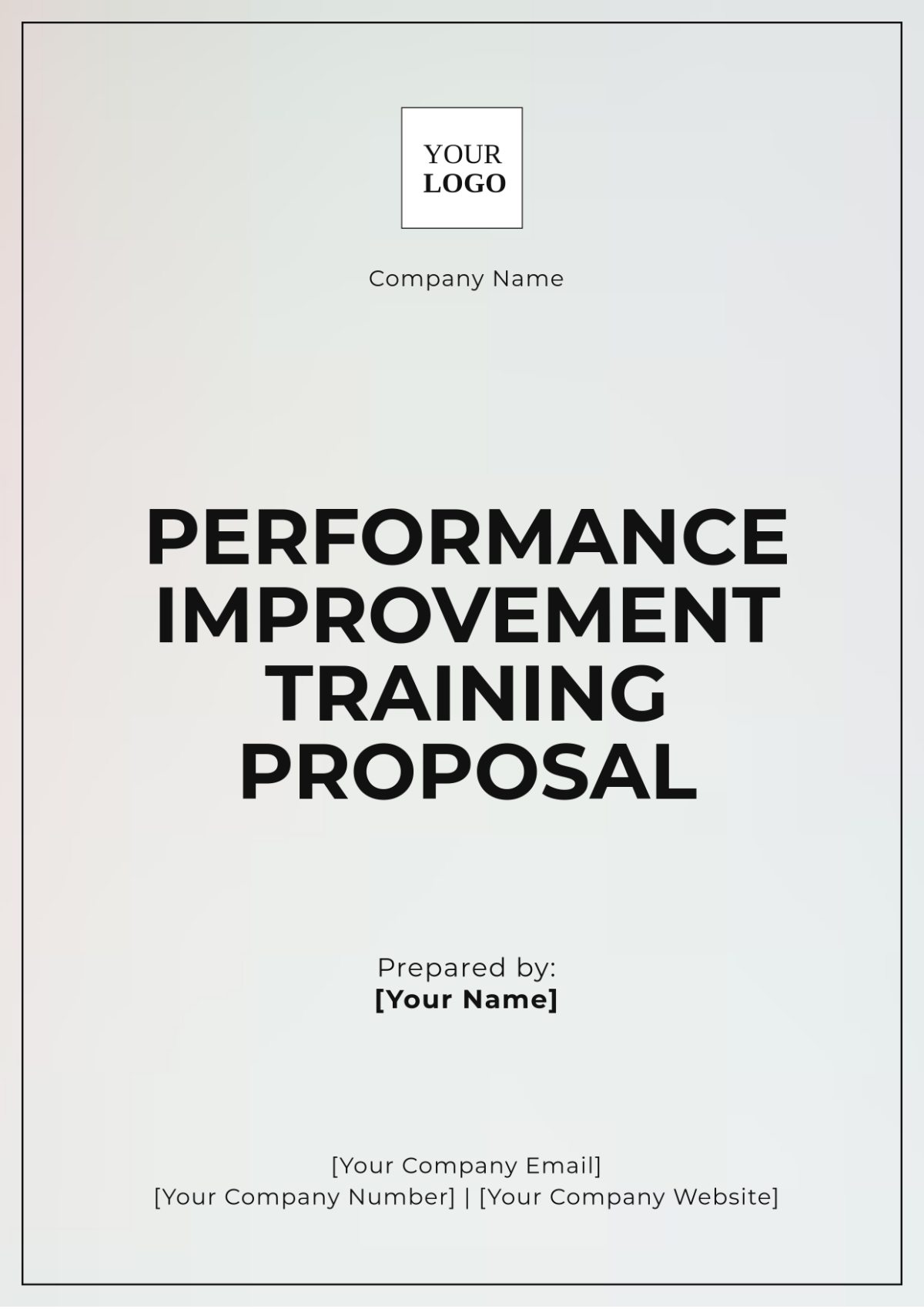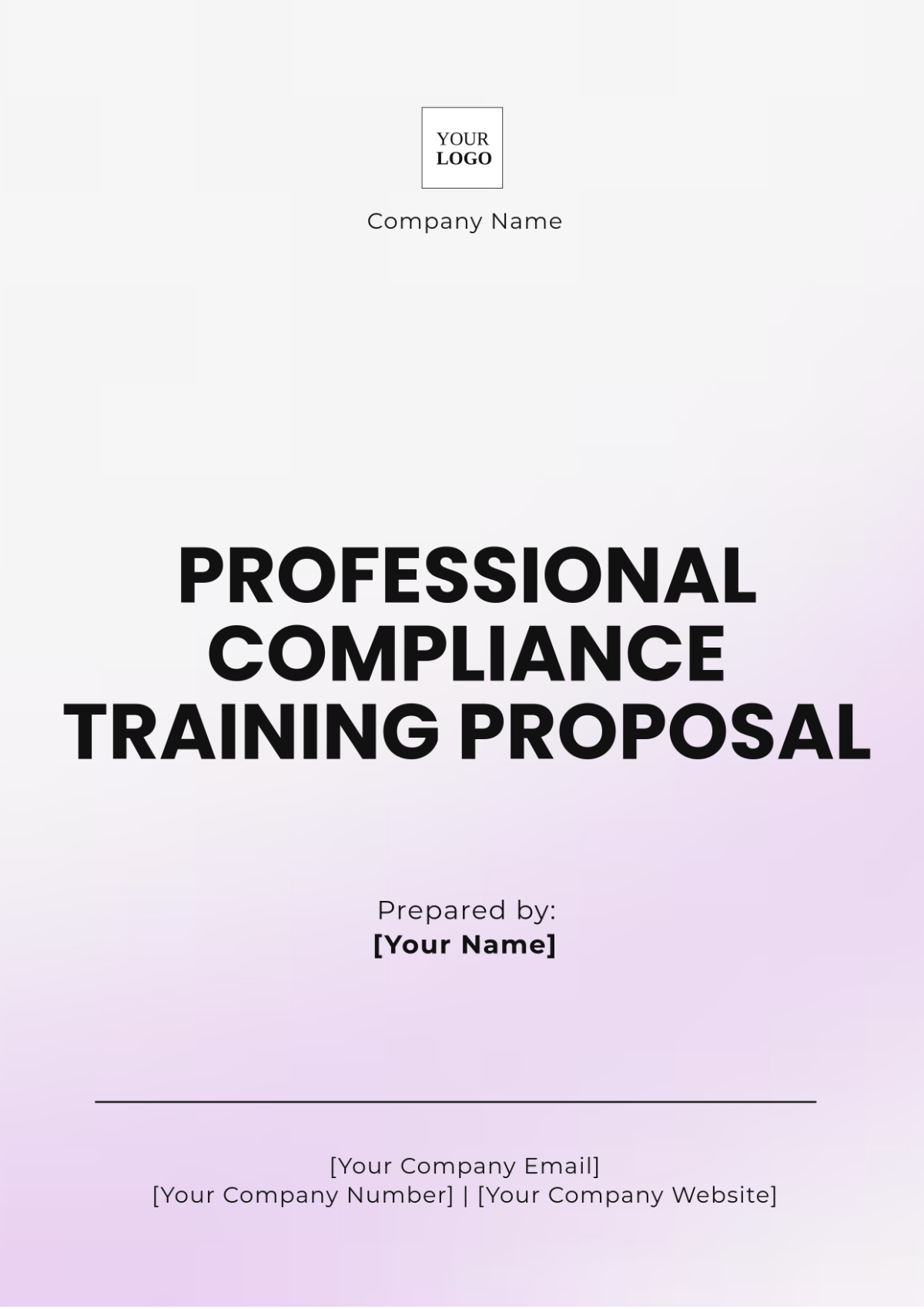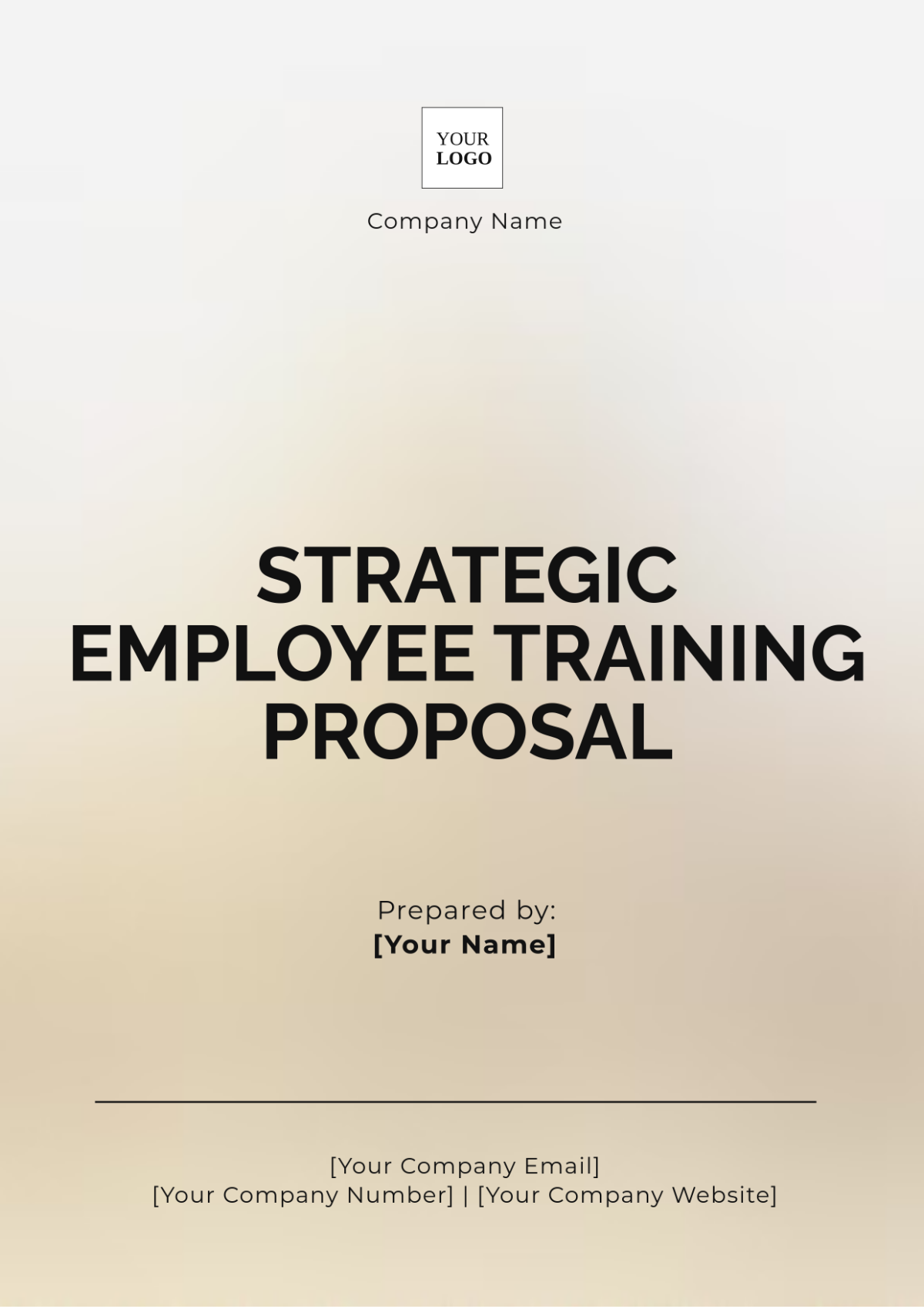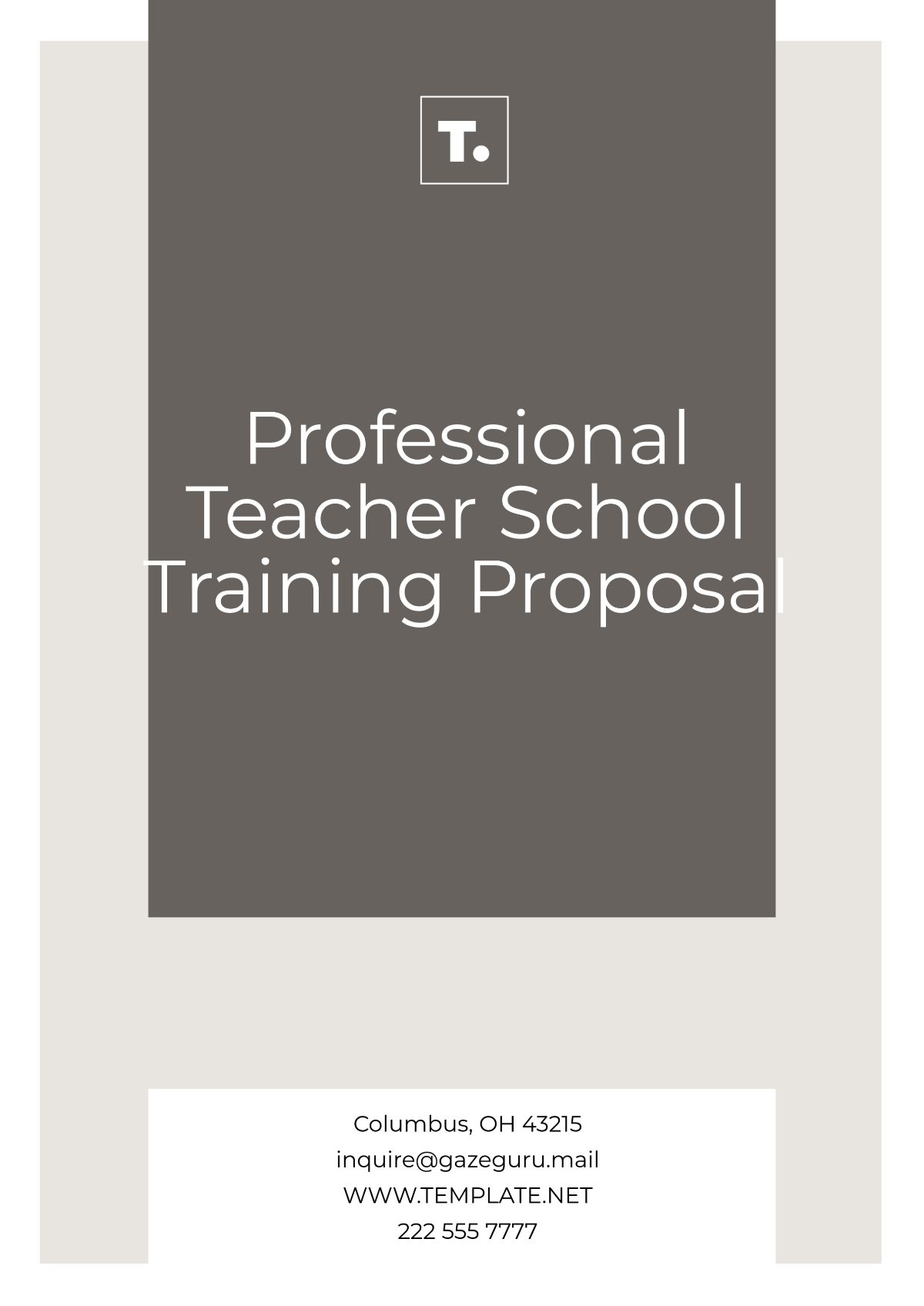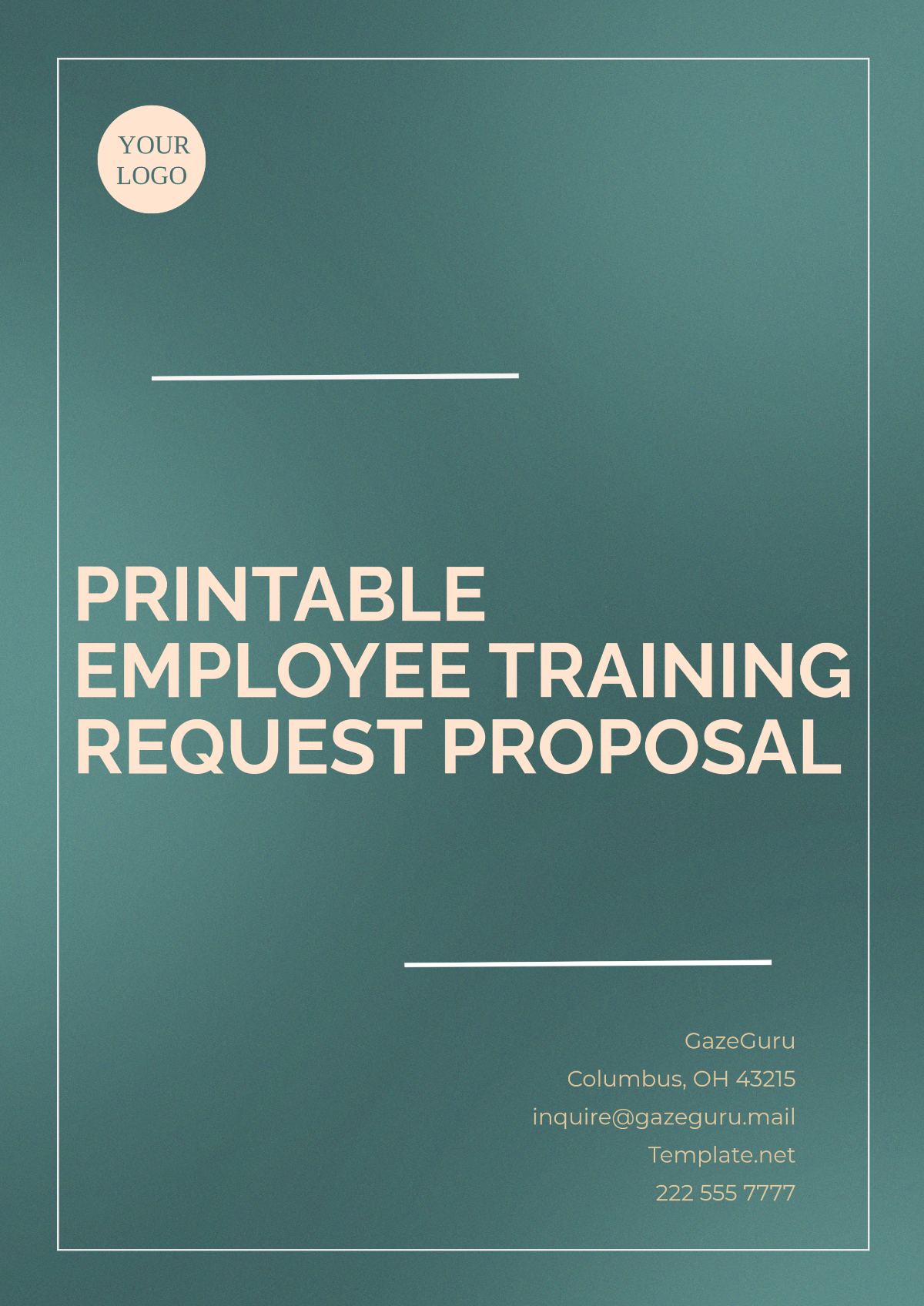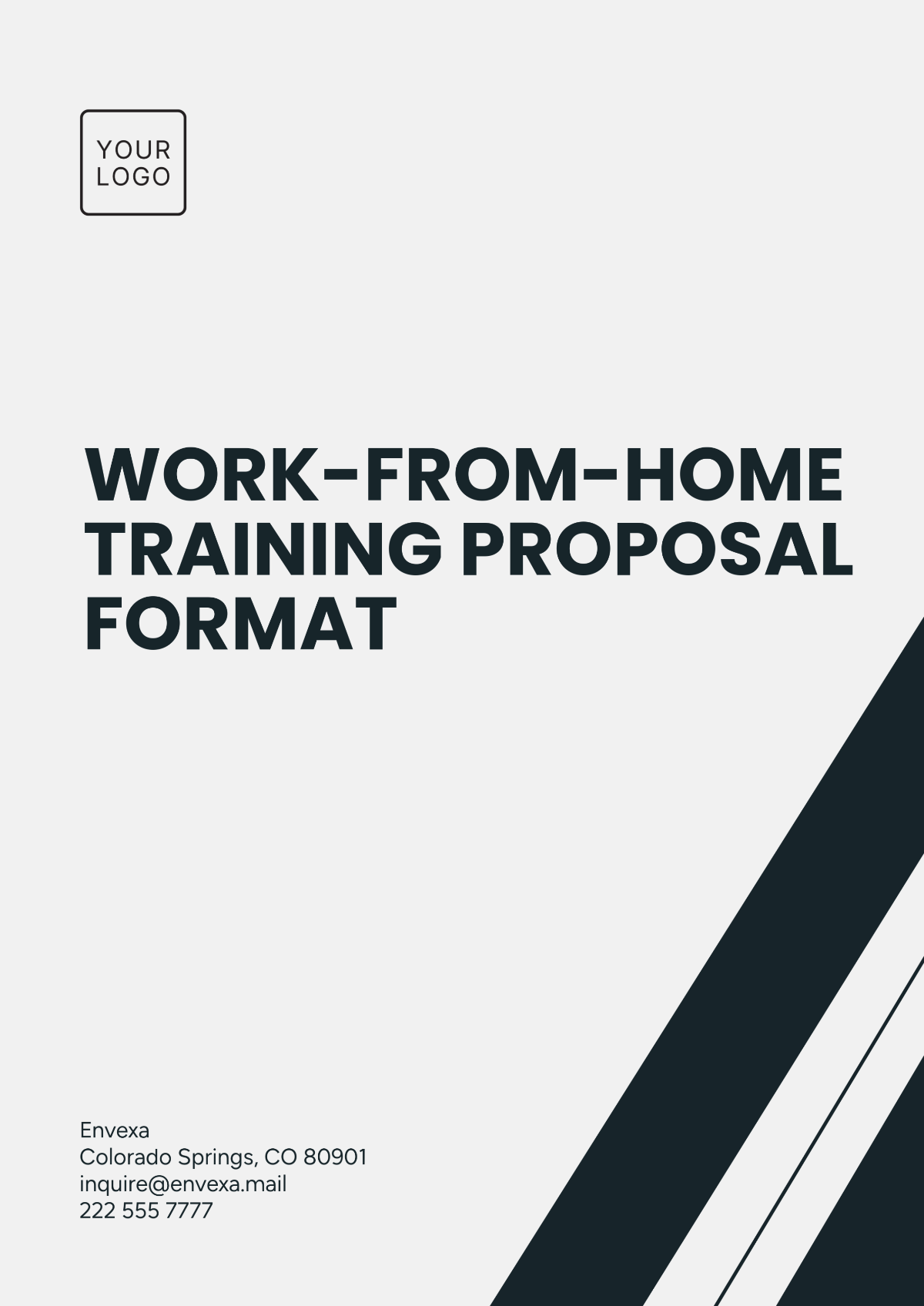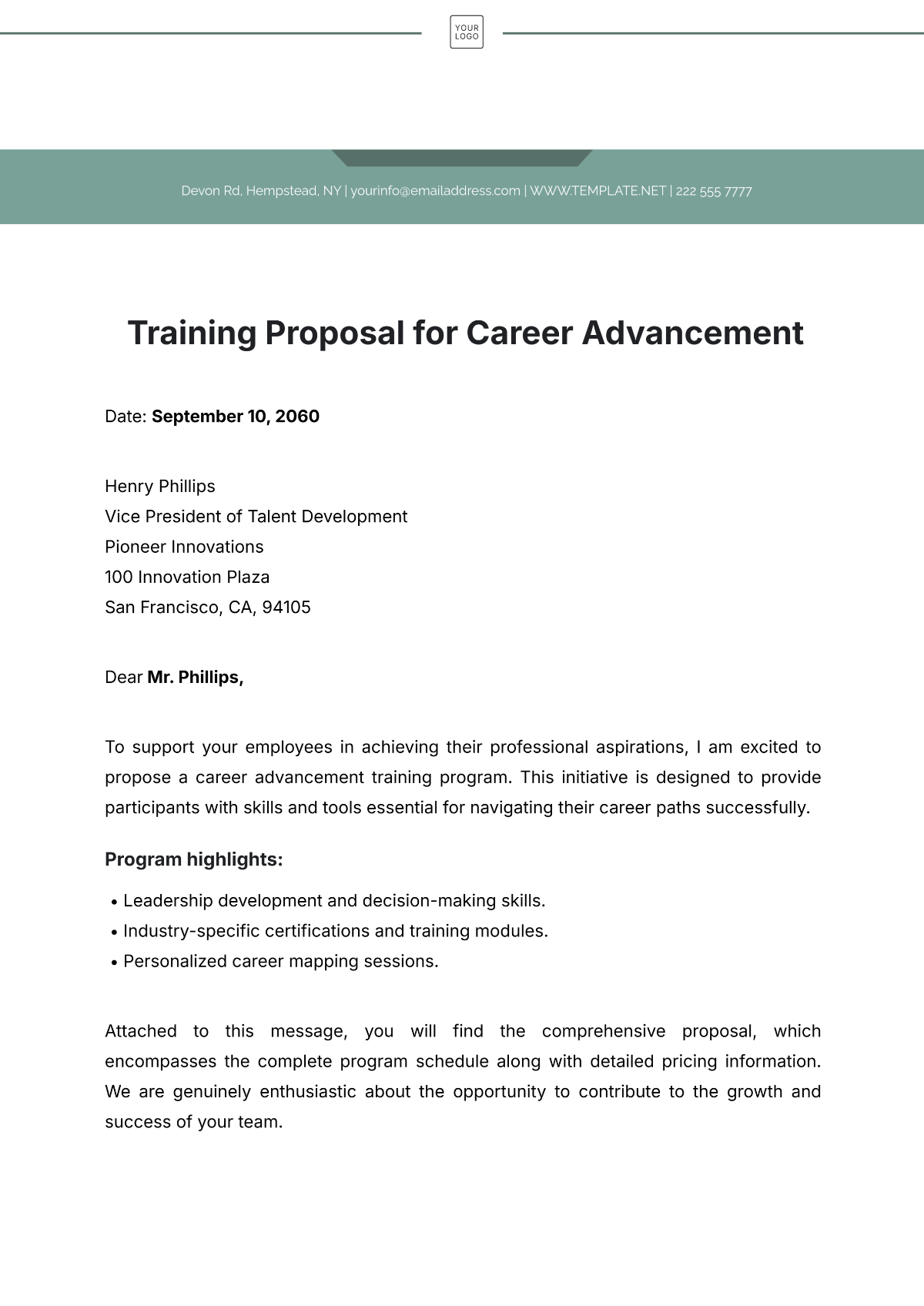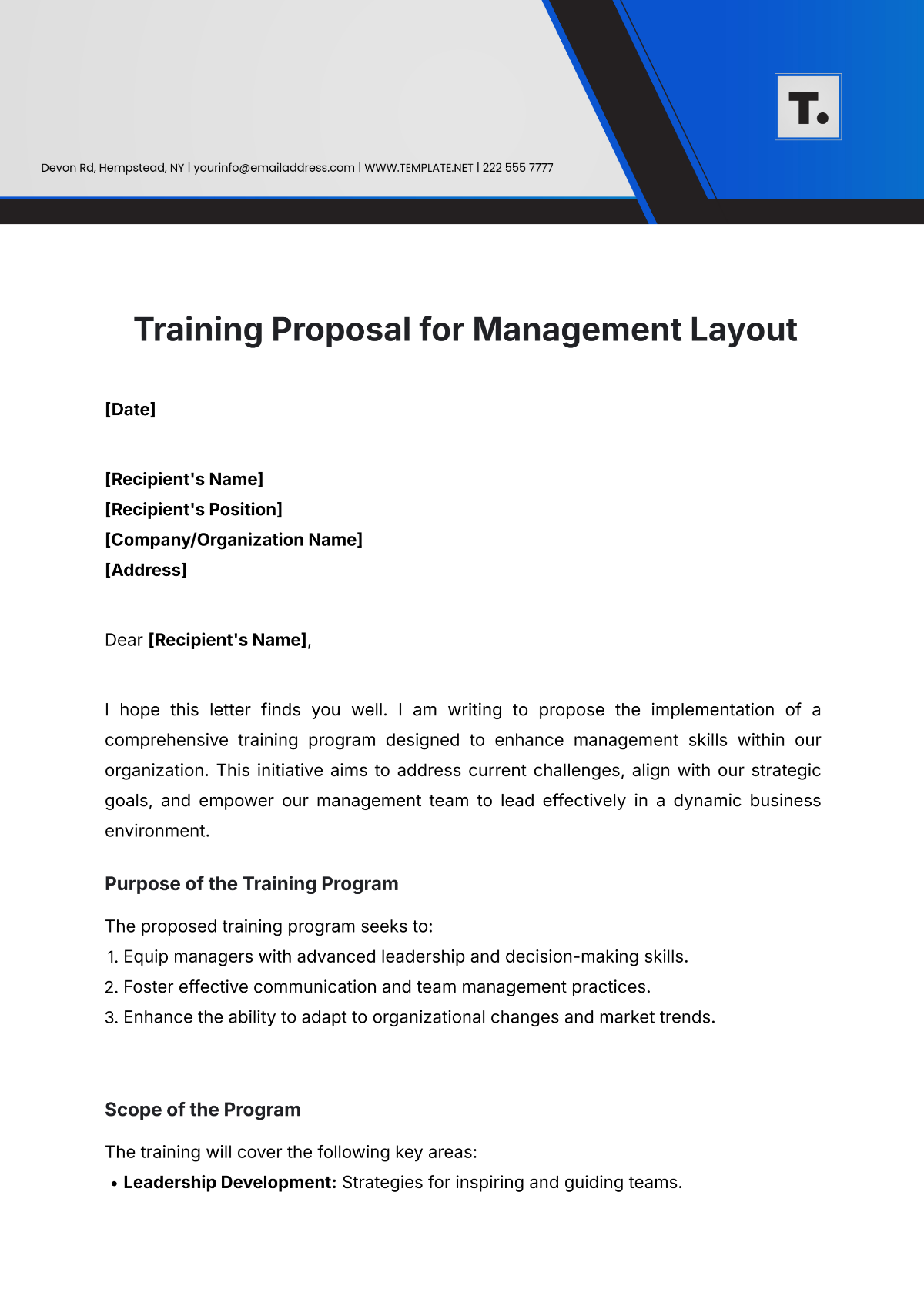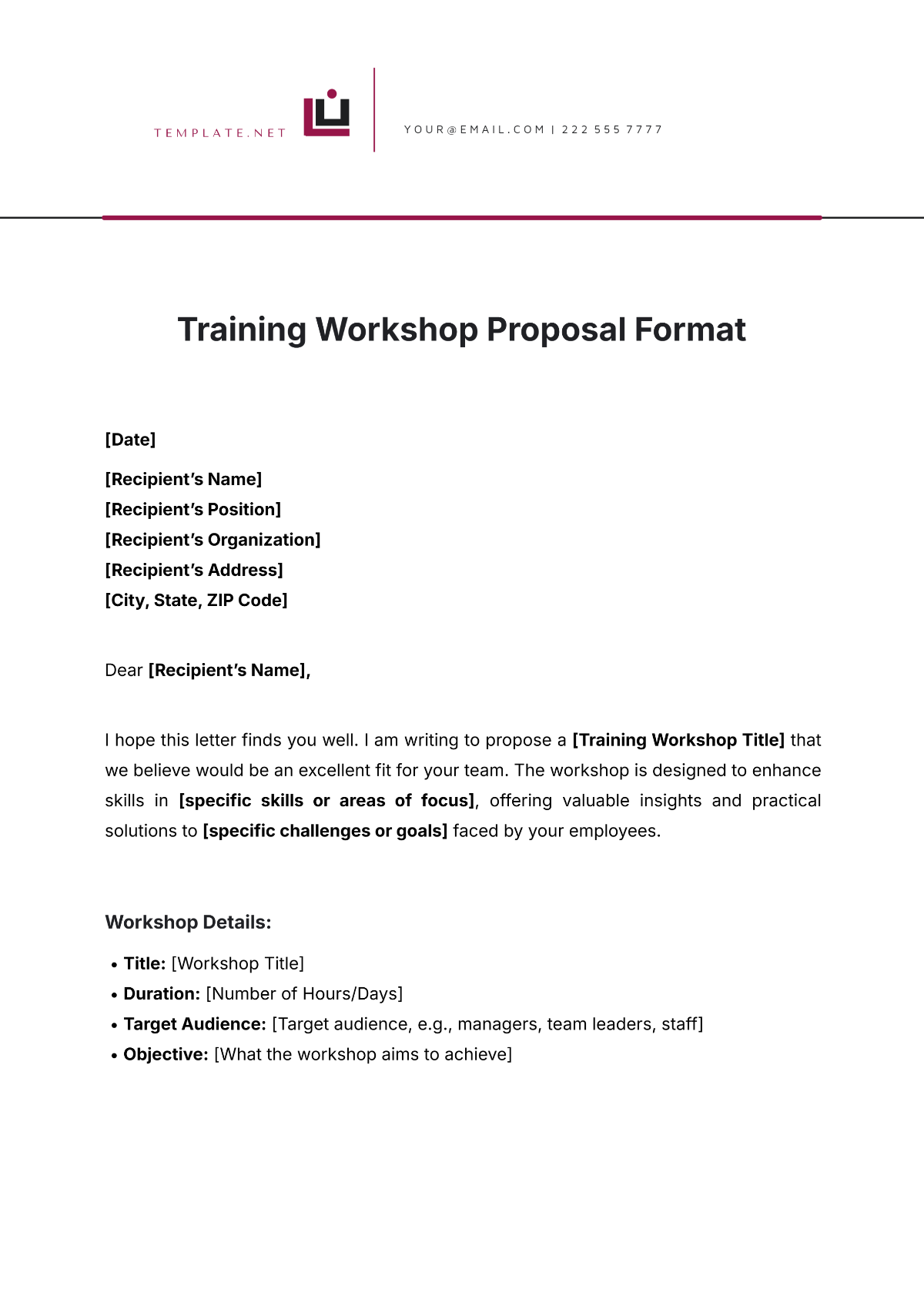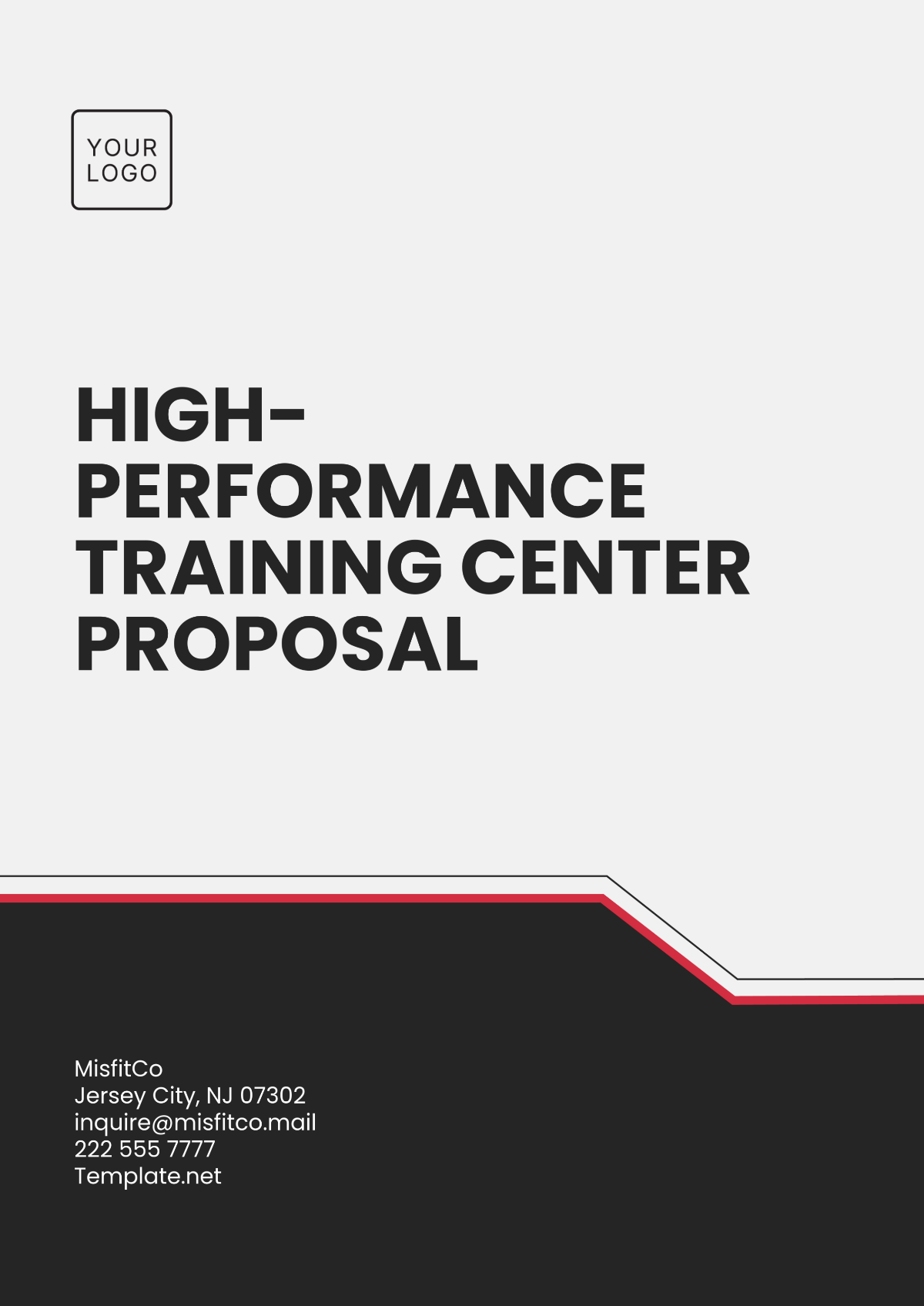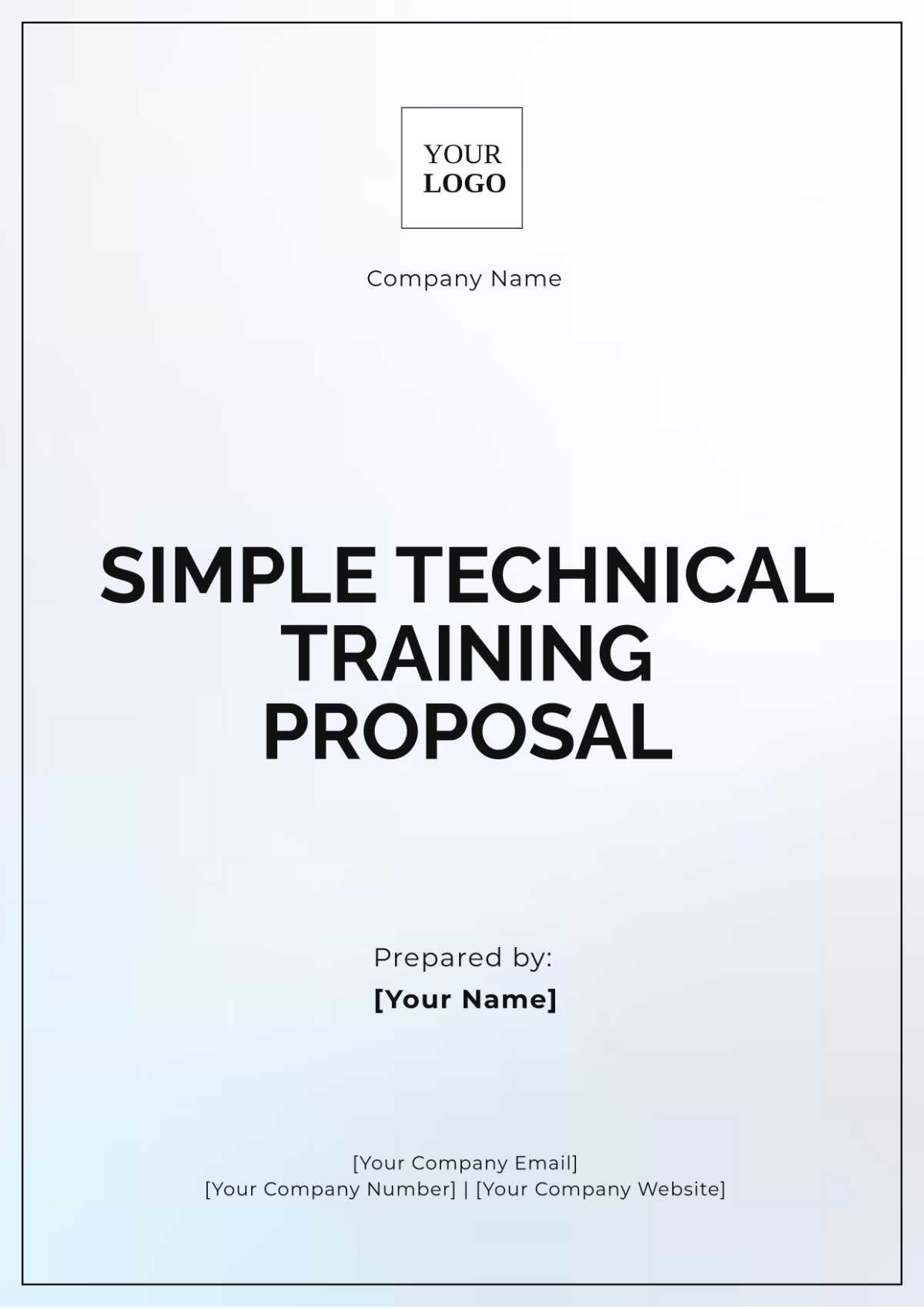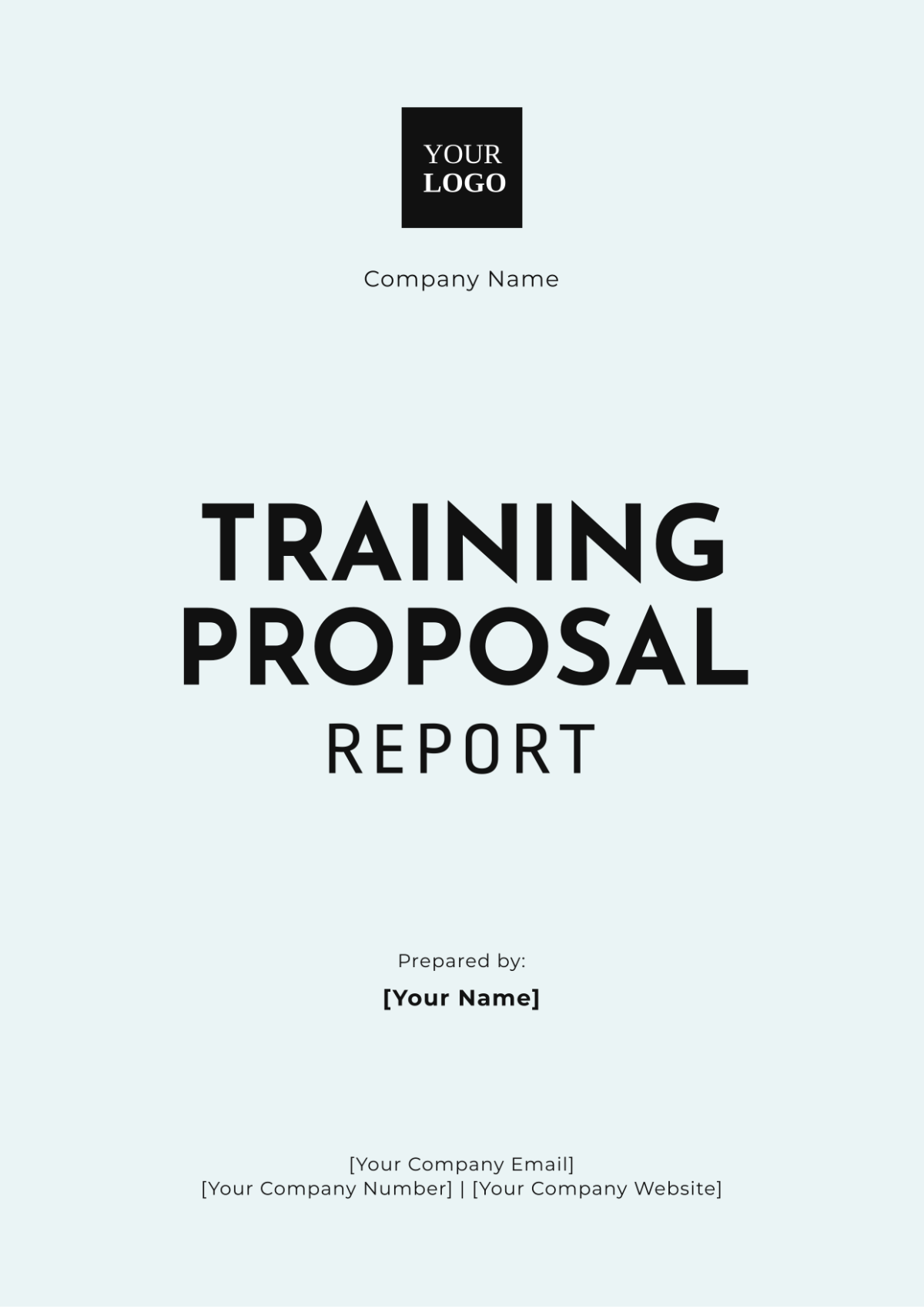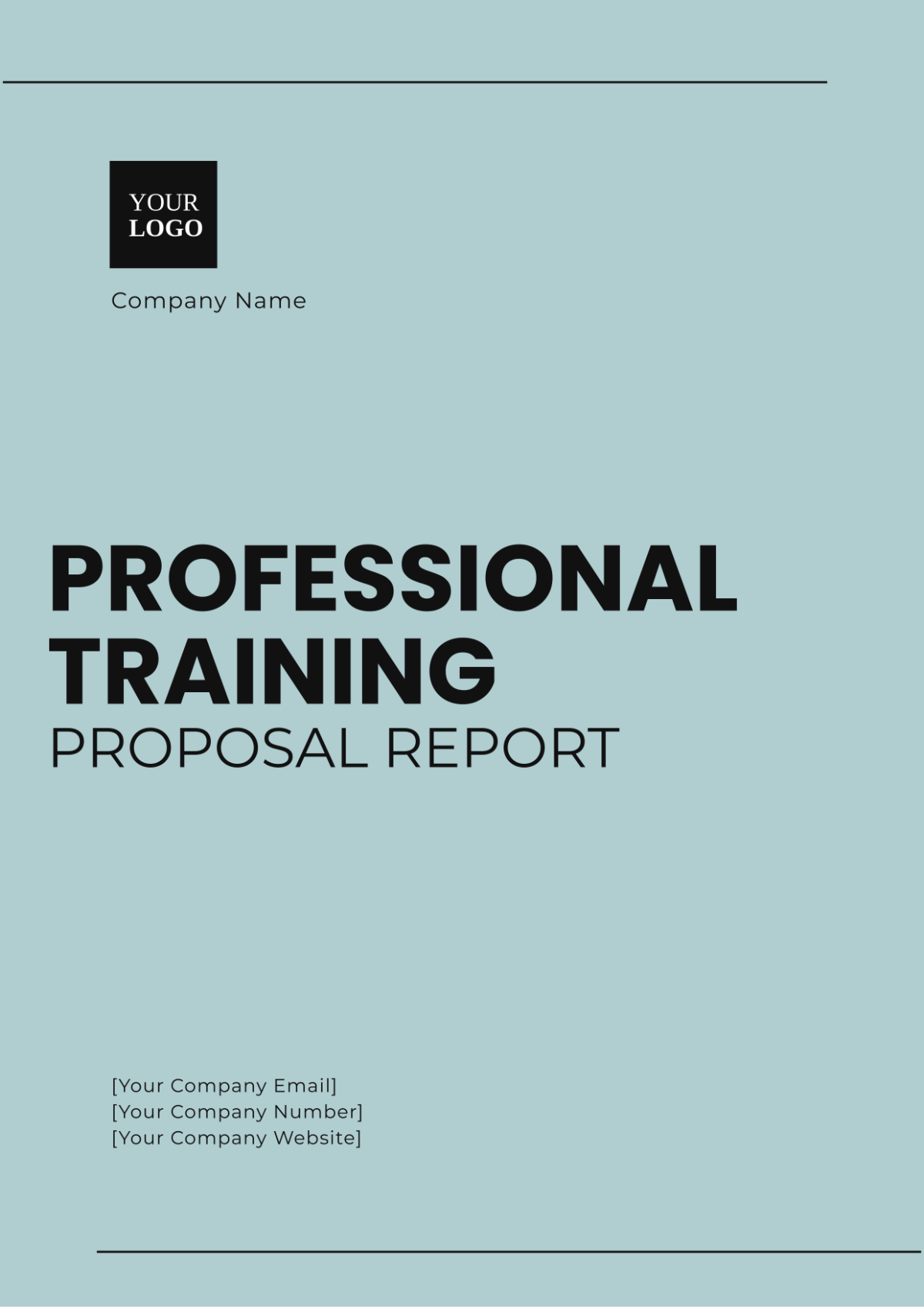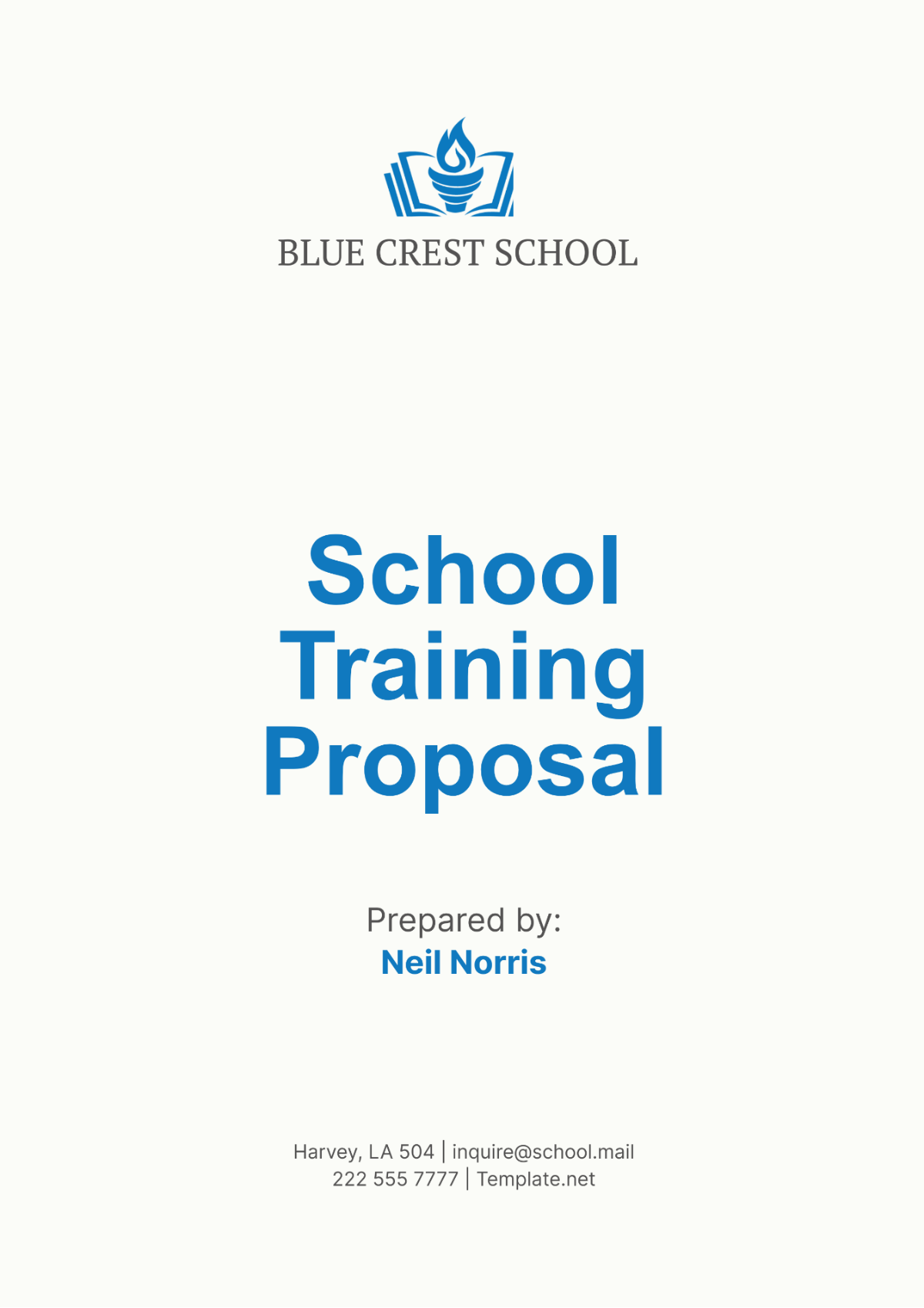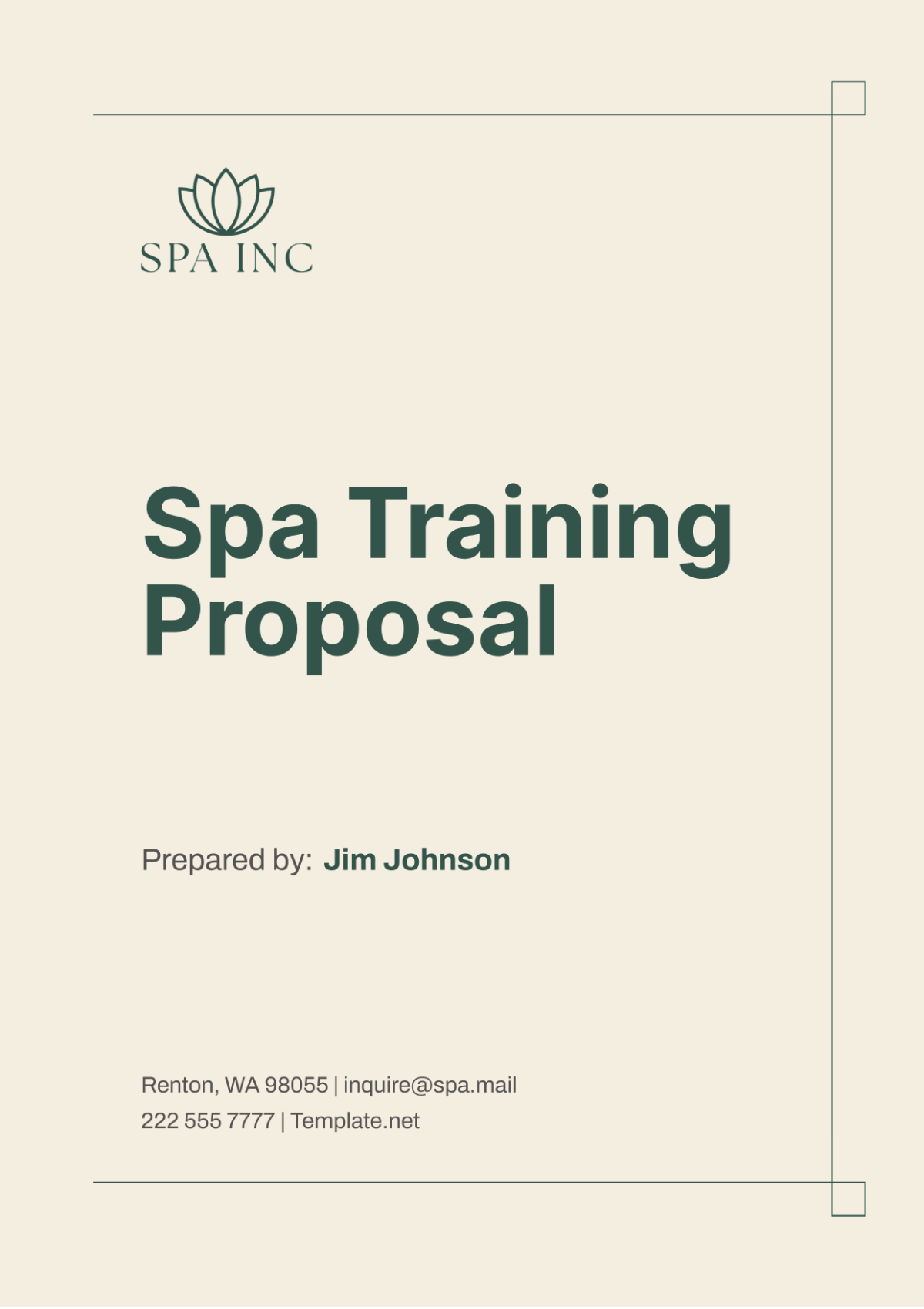Training Proposal
Prepared by: [Your Name]
Company: [Your Company Name]
Date: [Date]
I. Executive Summary
The purpose of this training proposal is to design a comprehensive and tailored training program aimed at enhancing organizational skills within [Your Company Name], our company. This program will focus on three core objectives: improving time management, communication, and team collaboration. The goal is to elevate the overall efficiency, effectiveness, and job satisfaction among employees, ultimately driving business success. This document outlines the proposed methodology, a detailed four-week training plan, required resources, evaluation criteria, and a realistic budget for implementation.
The expected outcomes of this initiative include enhanced productivity, streamlined workflows, improved communication across teams, and stronger team dynamics, leading to better business performance. The proposal also details how the success of the training will be measured through participant feedback and performance evaluations.
II. Introduction
In today's fast-paced and competitive business environment, success depends heavily on having a workforce equipped with essential organizational skills. [Your Company Name] recognizes the importance of continuous employee development and staying ahead of industry challenges. To meet this need, this training proposal is designed to provide employees with critical skills in time management, communication, and team collaboration.
The ability to effectively manage time, communicate clearly, and work seamlessly in teams is not only a vital component of individual growth but also contributes to organizational agility and competitiveness. By investing in these skills, [Your Company Name] aims to foster a culture of excellence, improve overall performance, and strengthen internal collaboration.
III. Objectives
Time Management
The primary goal is to empower employees to manage their time effectively by setting priorities, organizing tasks, and meeting deadlines without compromising quality. Participants will learn techniques such as the Eisenhower Matrix and SMART goal setting to enhance their productivity.
Communication Skills
Improving both verbal and written communication is essential to minimize miscommunication, streamline decision-making processes, and ensure clarity in conveying ideas. Employees will practice active listening, empathy in communication, and the art of delivering constructive feedback.
Team Collaboration
Effective collaboration is at the heart of any successful project. This objective focuses on enhancing employees’ ability to work within teams, foster trust, resolve conflicts, and work toward common goals. The training will help develop key interpersonal skills needed for teamwork, such as emotional intelligence and adaptability.
IV. Methodology
Workshops
Interactive workshops will be held weekly, led by industry experts with extensive experience in organizational development. The workshops will cover the theoretical aspects of time management, communication, and teamwork, with hands-on activities to cement learning. Tools such as mind maps and interactive quizzes will be used to keep sessions engaging.
Case Studies
Real-world case studies from successful companies will be analyzed to identify best practices and learning points. These case studies will cover both positive outcomes and lessons learned from failures, allowing participants to connect theory to real-world scenarios.
Group Activities
Group activities will encourage participants to collaborate, apply new skills, and solve problems together. Activities like “Escape Room” team-building exercises, collaborative problem-solving tasks, and simulations will foster an environment where skills can be applied in real time.
V. Training Plan
The training program will be delivered over four weeks, with two sessions per week. Each session will last for two hours, and participants will engage in various activities that are specific to the weekly focus areas.
Week | Focus Area | Activities |
|---|---|---|
Week 1 | Time Management | Workshops on prioritization, time-blocking, and productivity tools. Interactive exercises to apply methods such as the Pomodoro technique. |
Week 2 | Communication | Case studies on corporate communication breakdowns and successes. Role-playing exercises to practice active listening and feedback techniques. |
Week 3 | Team Collaboration | Group projects to solve complex business problems collaboratively. Team-building exercises, including communication drills and trust-building activities. |
Week 4 | Review & Assessment | Final assessment of learned skills through real-time scenarios. Comprehensive feedback sessions to evaluate personal progress and group performance. |
VI. Resources
Human Resources
Facilitators: External consultants specializing in organizational development, assisted by internal HR personnel who will manage logistics and participant coordination.
Support Staff: IT and administrative staff to ensure smooth execution of sessions, including managing audiovisual equipment and setting up training materials.
Facilities
The training will be conducted in [Your Company Name]'s in-house conference rooms, equipped with projectors, whiteboards, and Wi-Fi access for remote participation. Breakout rooms will be available for group activities.
Materials
Comprehensive training manuals will be distributed to participants, including digital copies for remote access. Additional resources like video tutorials, presentation slides, and case study handouts will be provided.
VII. Evaluation
Participant Feedback
Each participant will complete anonymous surveys after each session to assess the perceived relevance and effectiveness of the training. Additionally, focus groups will be conducted post-training to gather more detailed feedback on the program.
Performance Metrics
Pre-training assessments will benchmark current skill levels, followed by post-training evaluations to measure improvement. Metrics such as task completion rates, time management scores, and team collaboration performance will be used.
Long-term Impact
Departmental performance reviews will be conducted six months post-training to track improvements in workflow efficiency, team dynamics, and overall productivity. Data from these reviews will be used to refine future training initiatives.
VIII. Budget
Item | Estimated Cost |
|---|---|
Facilitator Fees | $5,000 |
Facilities Rental | $2,000 |
Training Materials | $1,500 |
Group Activity Costs | $500 |
Administration Costs | $500 |
Total | $9,500 |
Note: The budget includes contingencies for unforeseen expenses related to resource acquisition or extended sessions.
IX. Conclusion
This training proposal outlines a structured, well-thought-out plan to develop essential organizational skills within [Your Company Name]. Through a combination of expert-led workshops, practical activities, and ongoing assessment, the program aims to improve productivity, enhance communication, and foster stronger collaboration within teams. With a clear strategy for resource allocation, realistic goals, and robust evaluation methods, this training program is expected to have a significant and measurable impact on our organizational performance. We are excited to implement this initiative and anticipate positive results that will strengthen the company's competitive edge in the industry.
